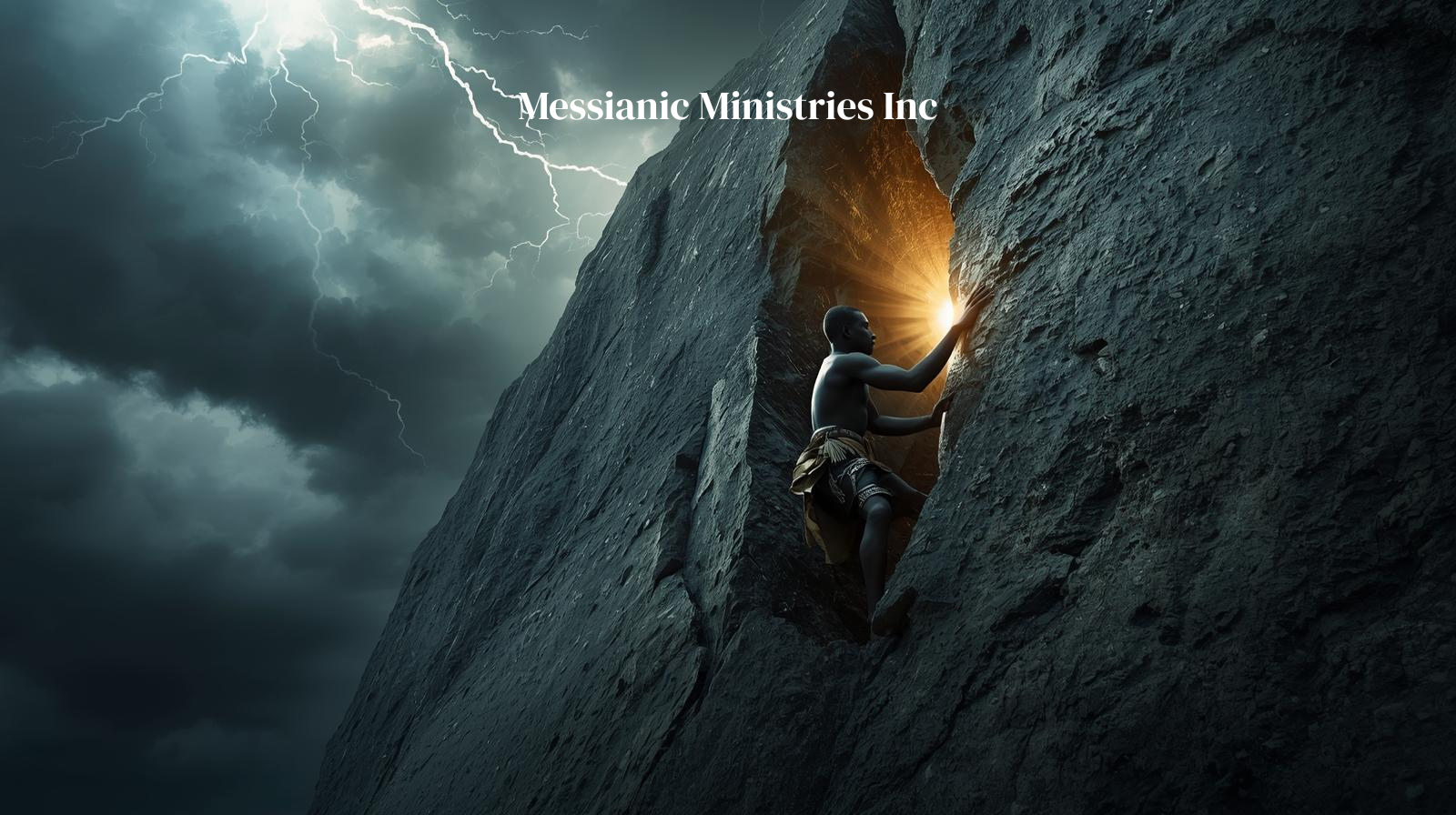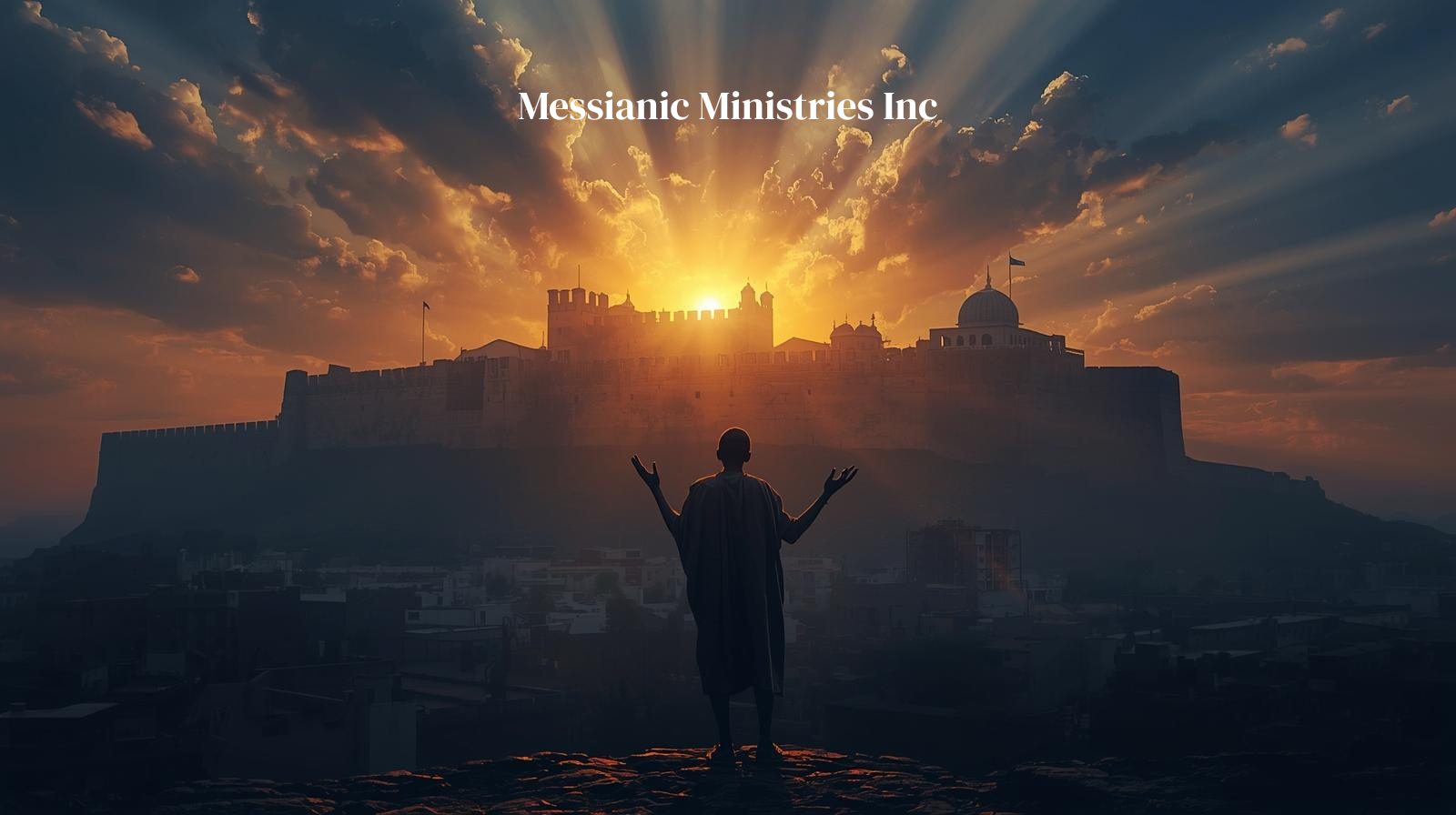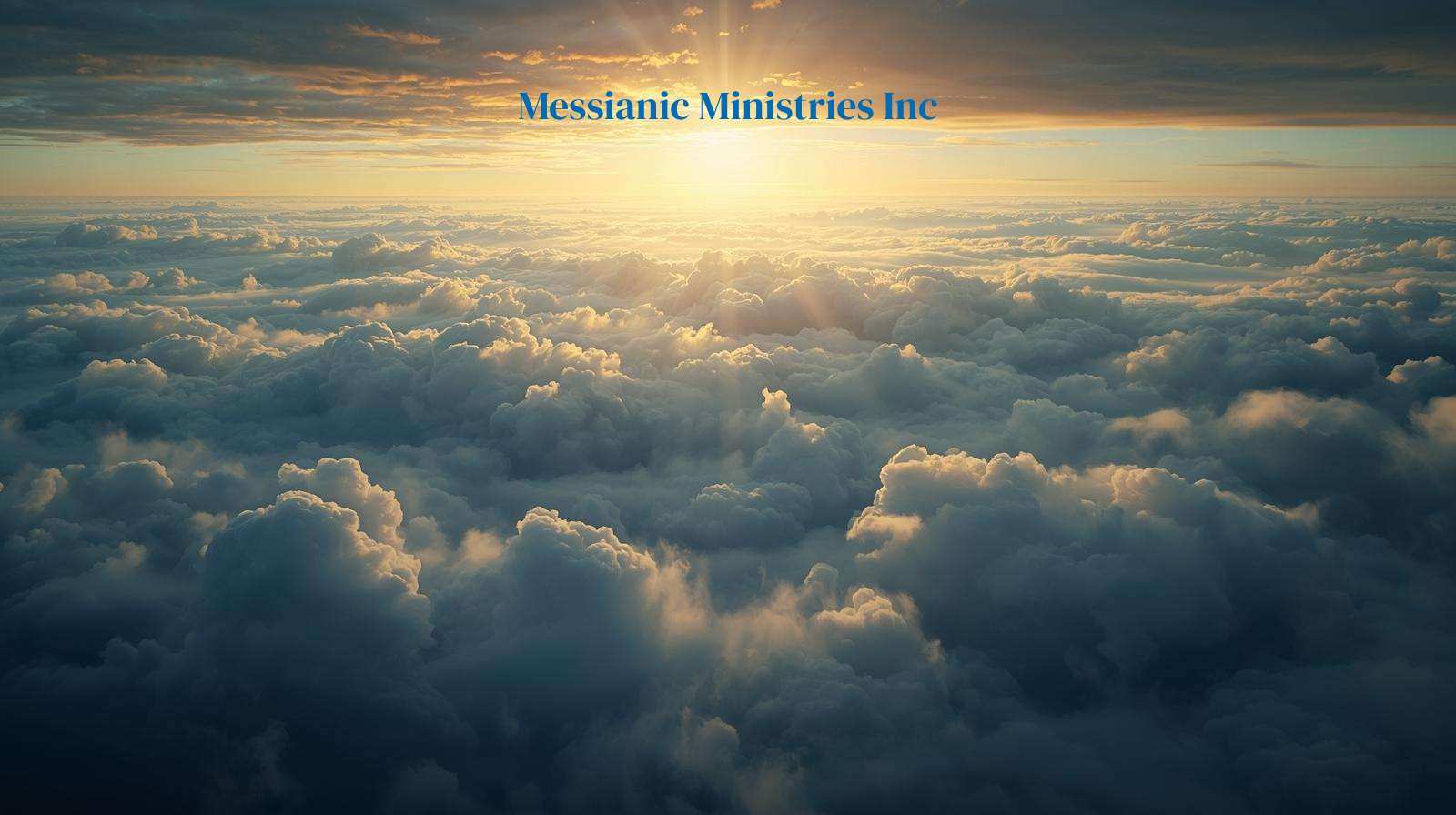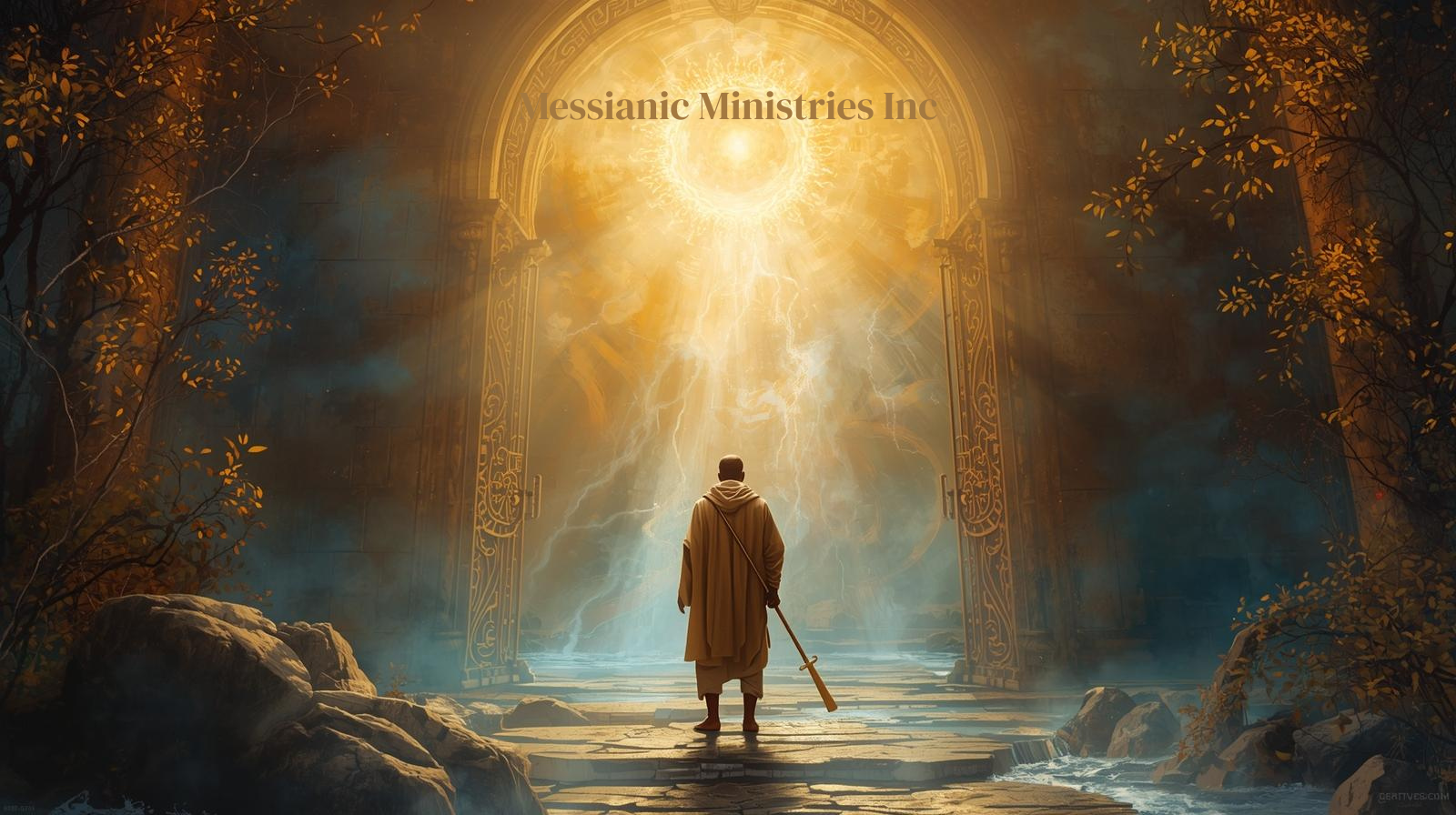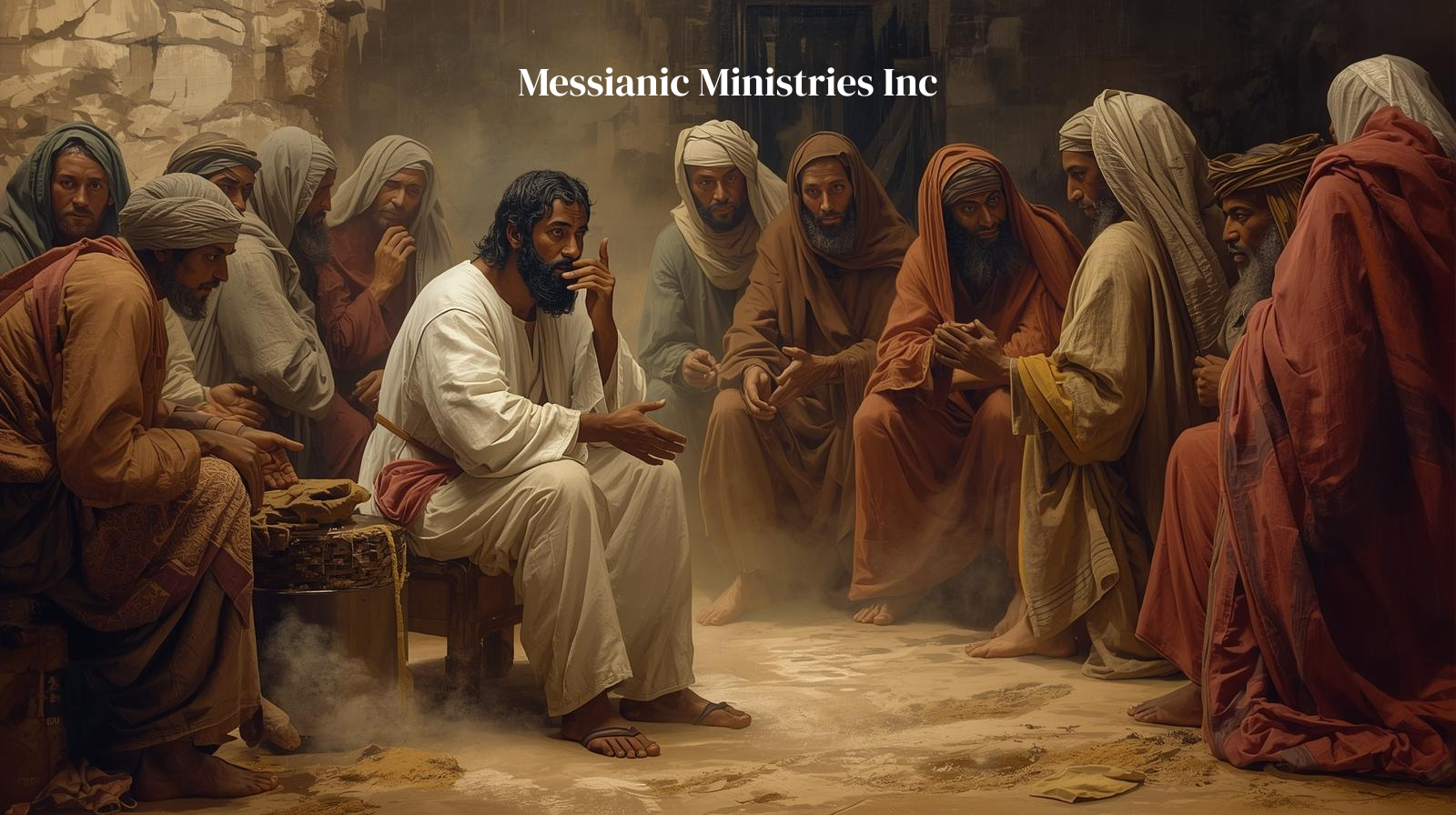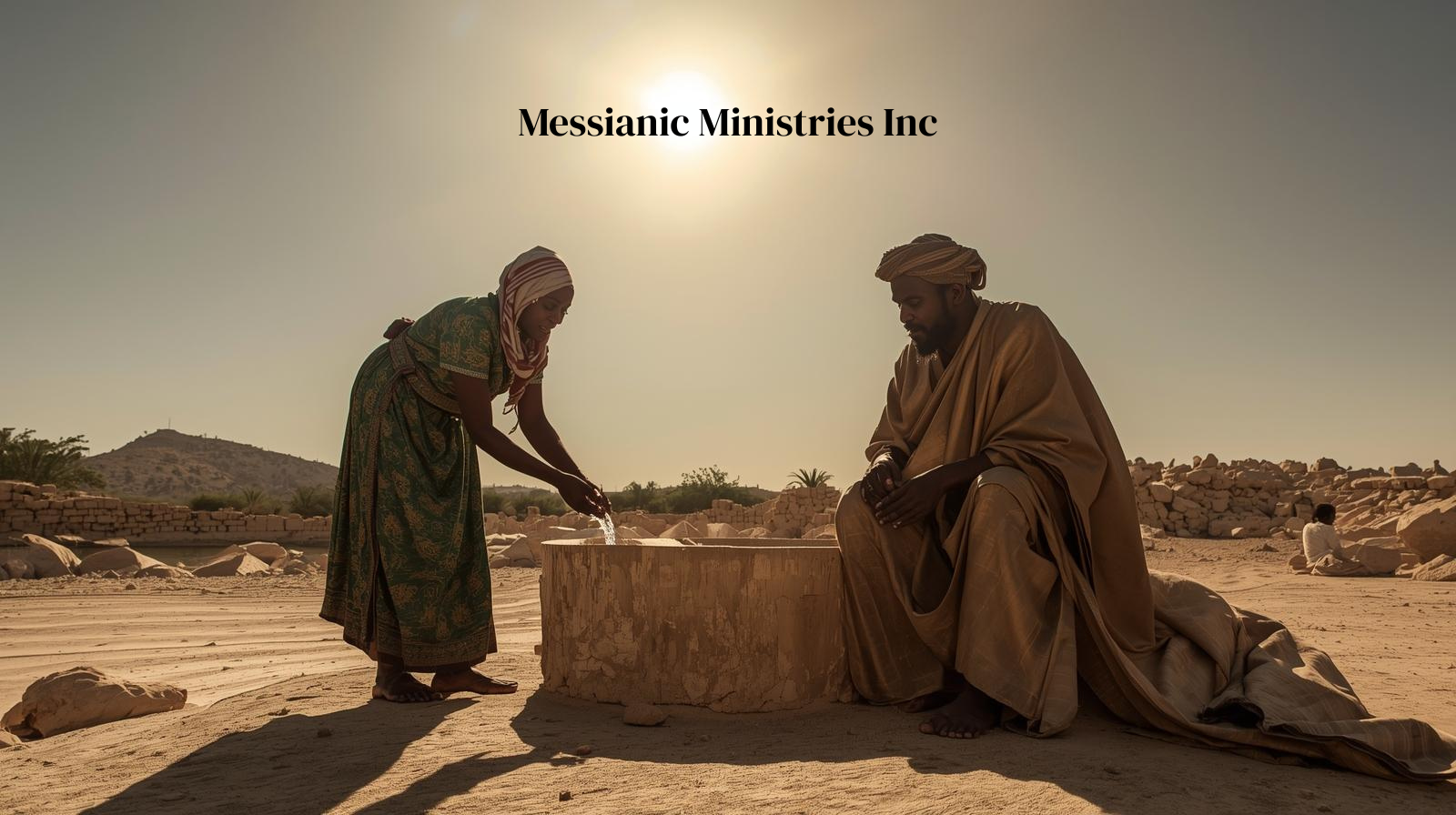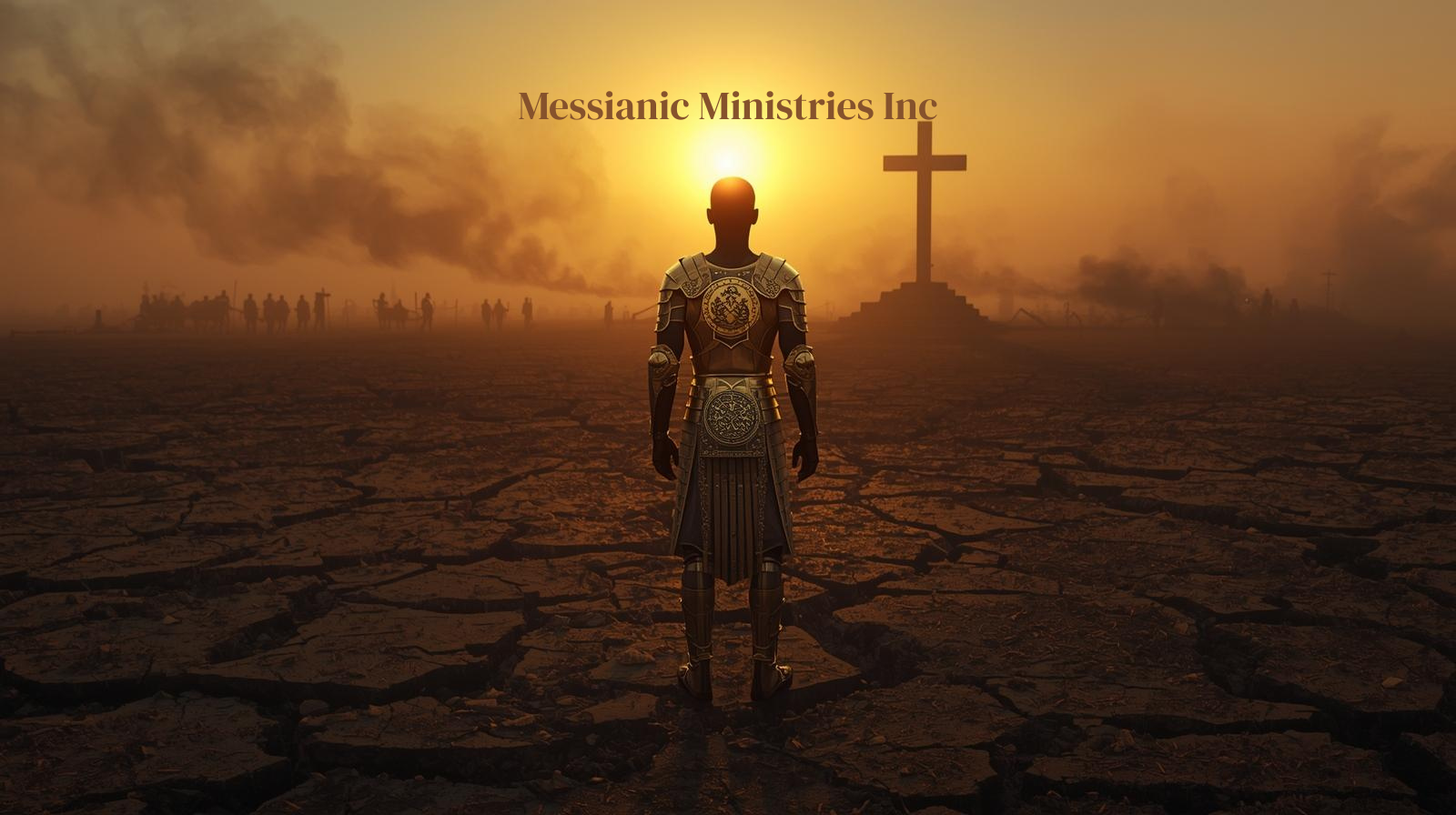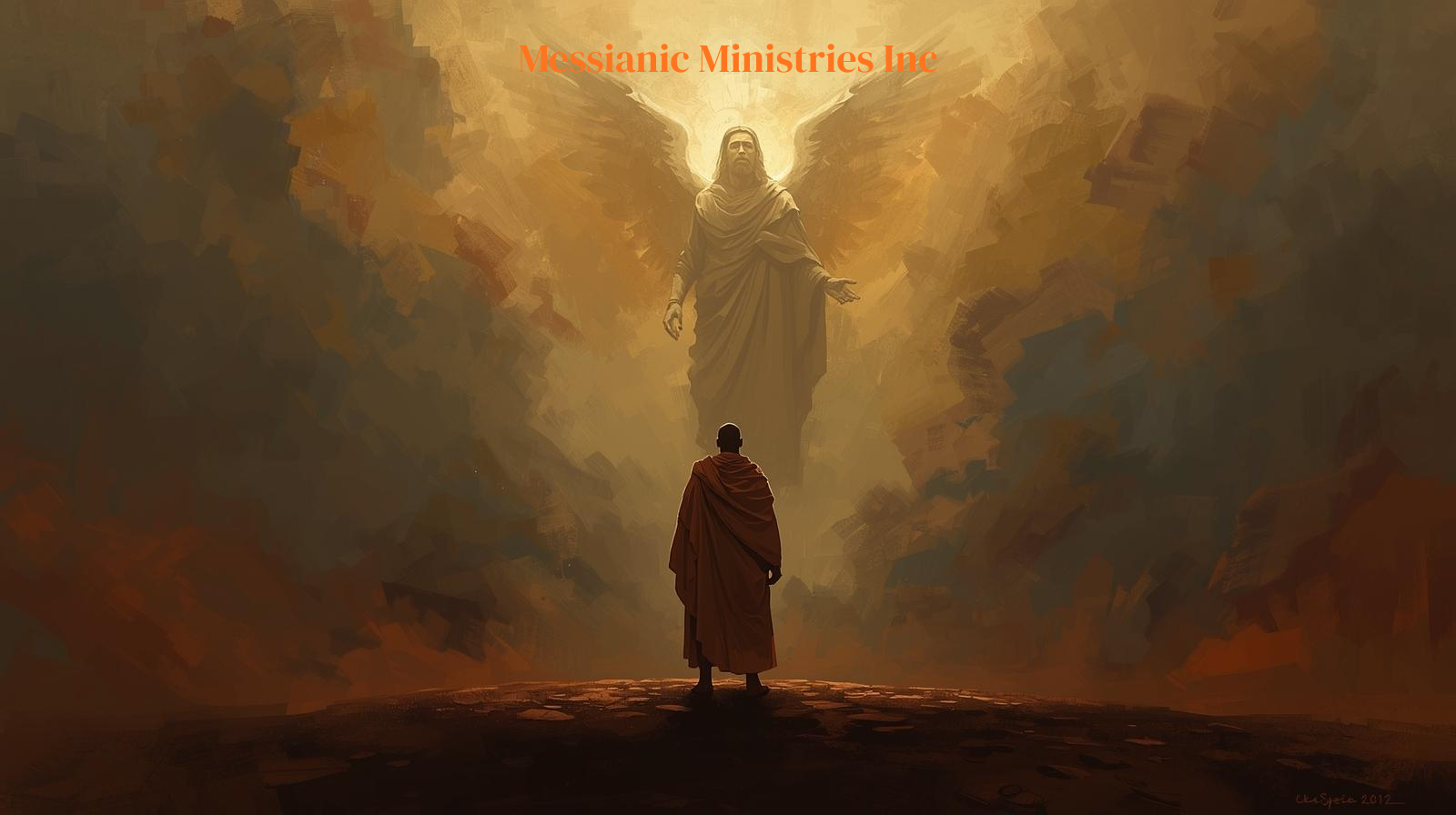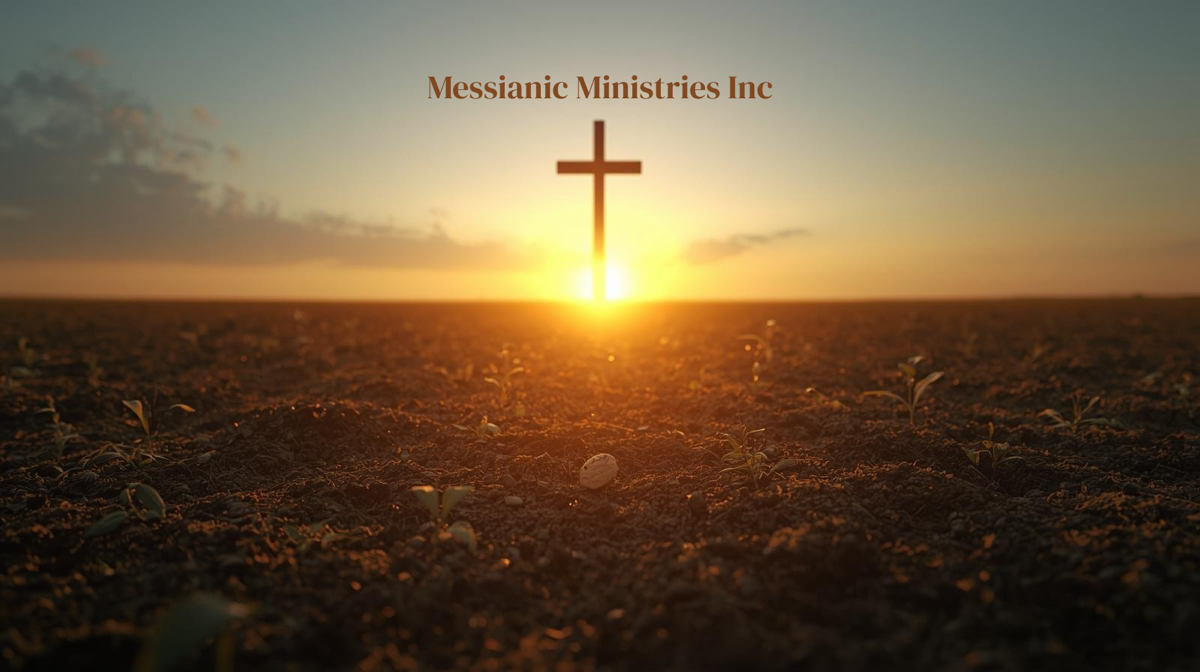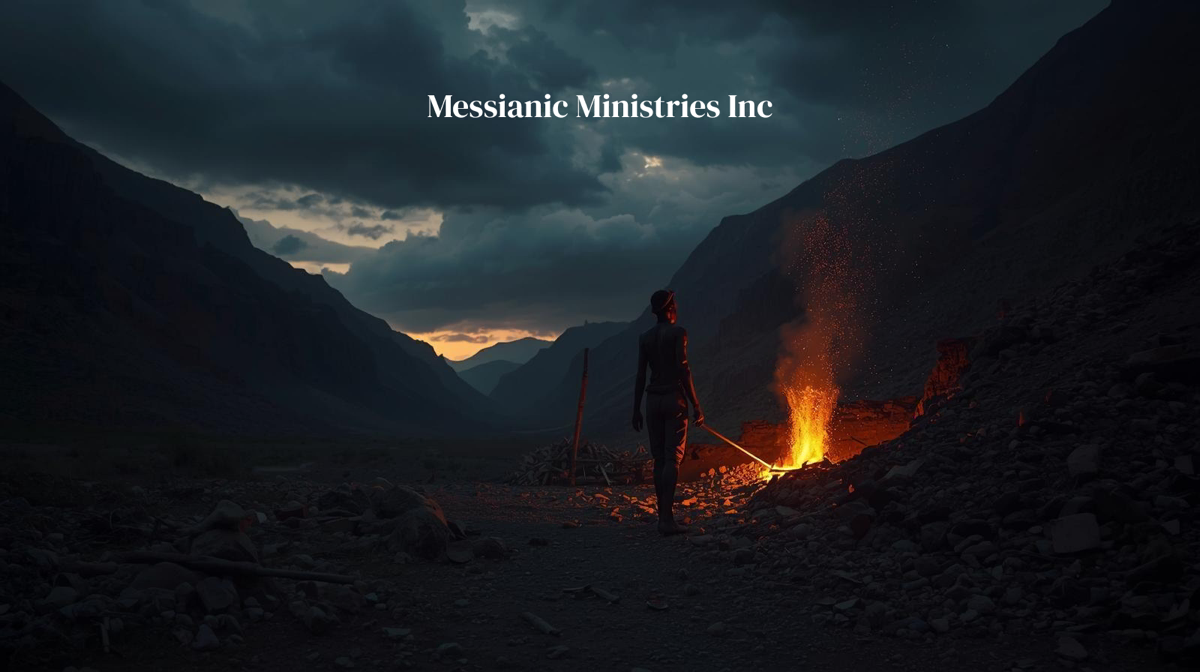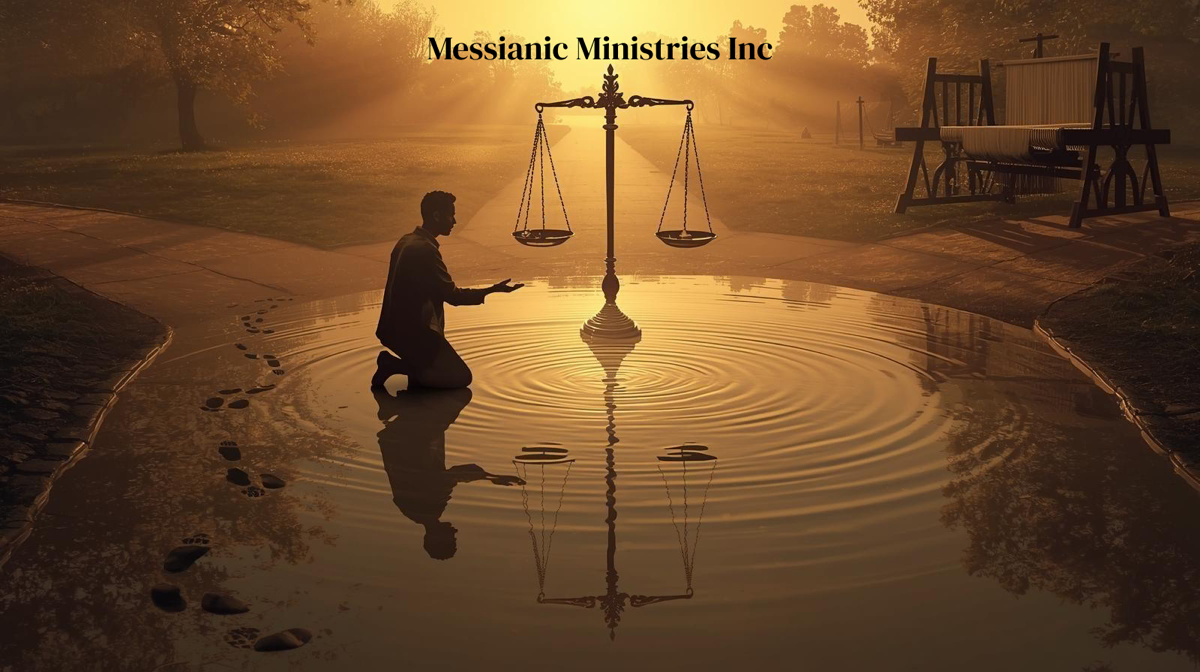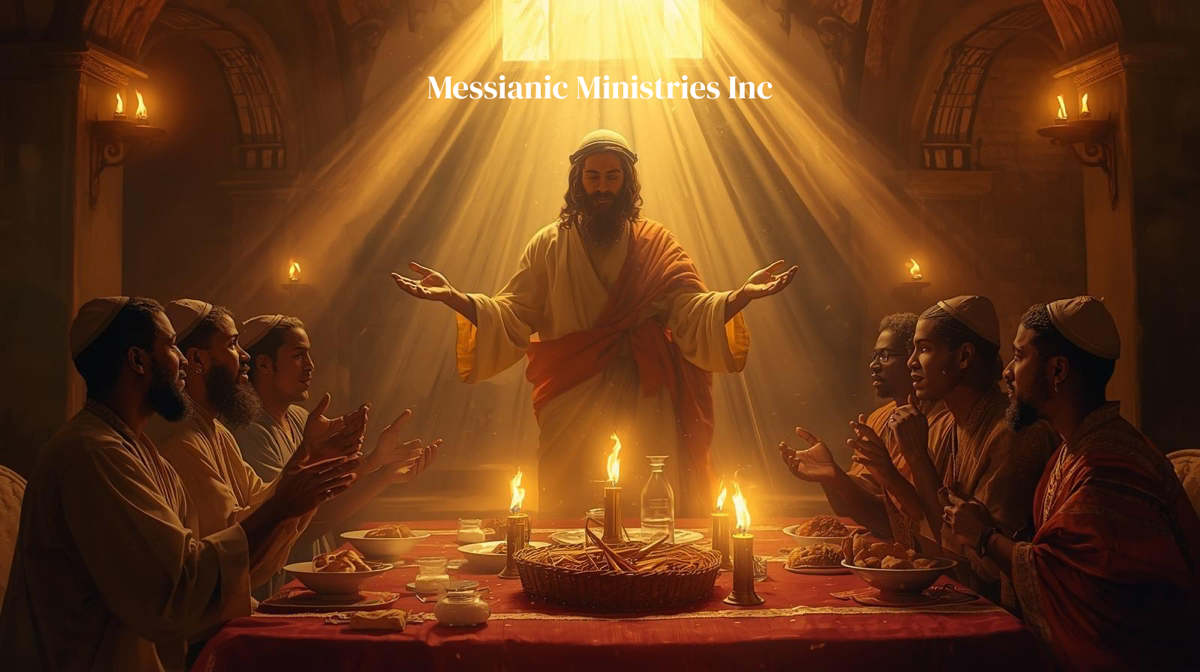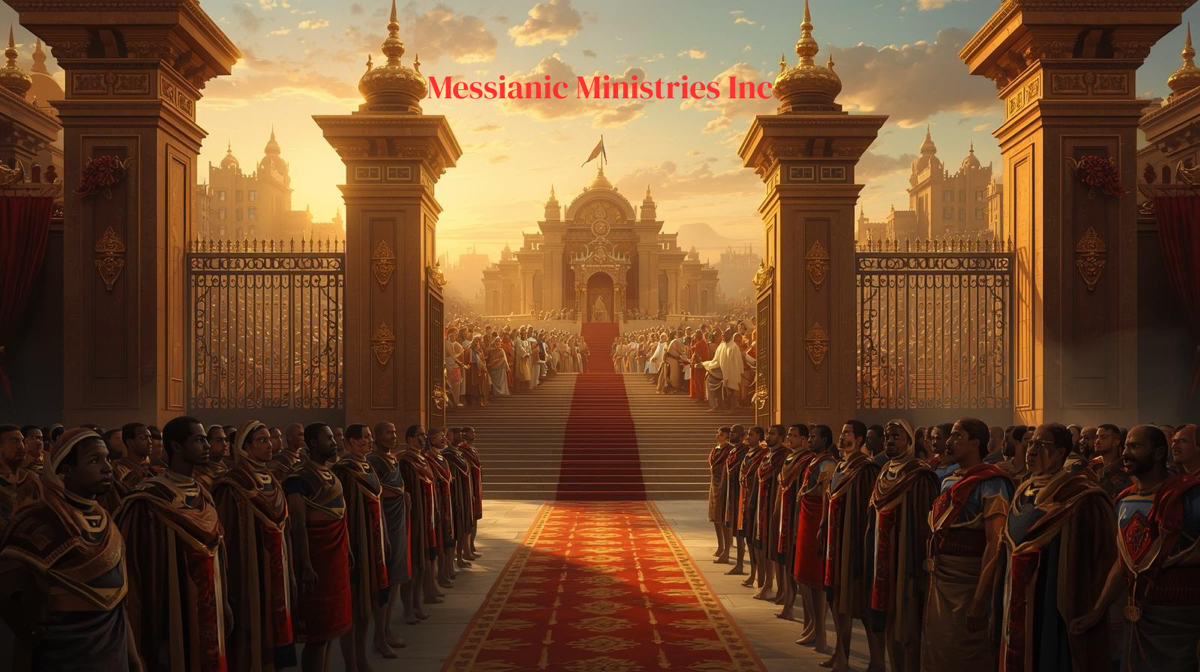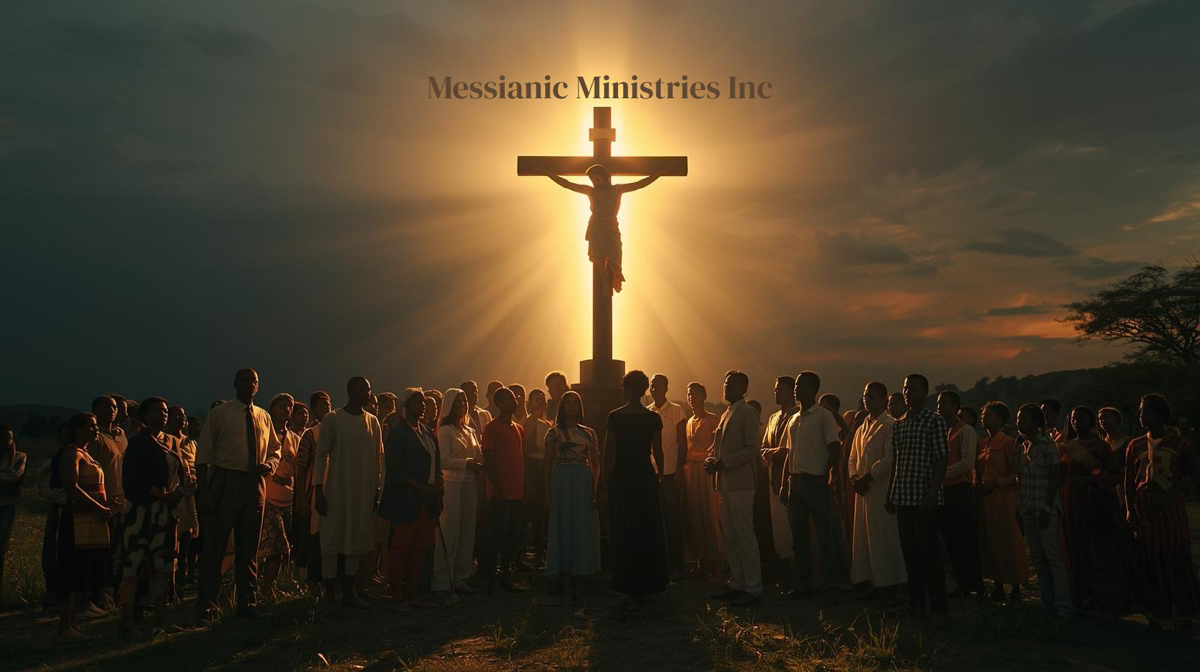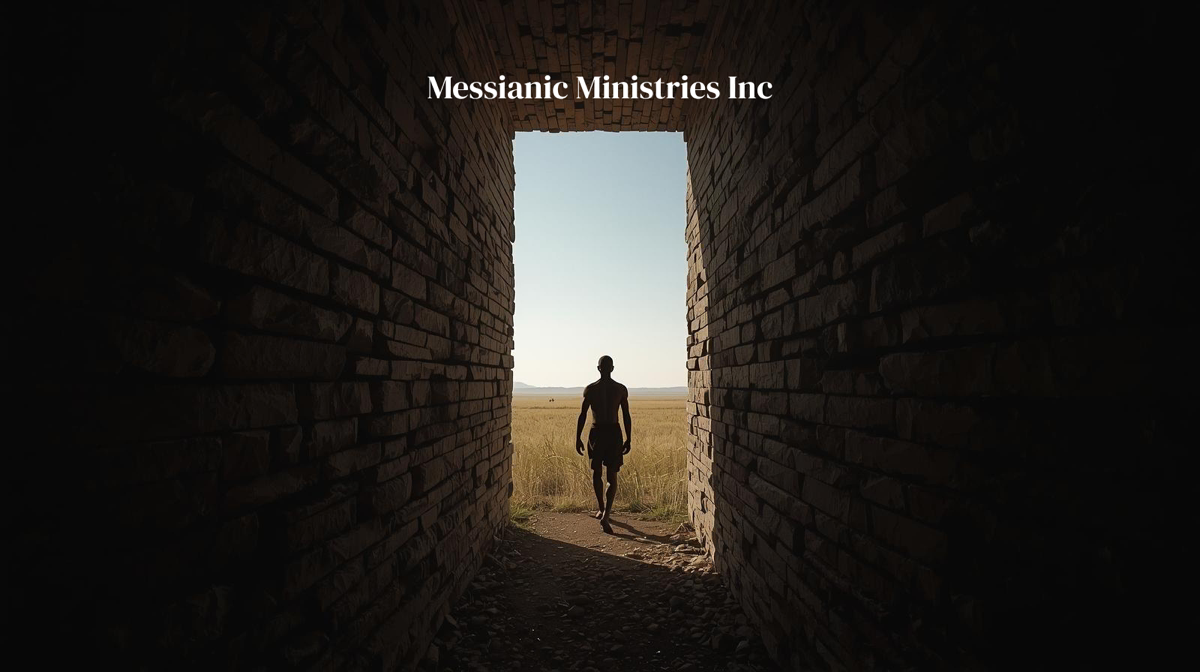The Unassailable Refuge of the Promised Messiah
Psalm 18:1-2
Psalm 18 commences with a proclamation that is both personal and resolute. Affection precedes salvation. Affection precedes certainty. David commences not with a narrative of peril but with an admission of loyalty. “I will love thee” signifies a deliberate commitment rather than a fleeting emotional urge. It is the reaction of one who has discovered that the Lord Himself embodies strength, rather than merely bestowing it.
The subsequent imagery is both cumulative and intentional. Rock, fortress, deliverer, shield, trumpet, and towering tower are not superfluous embellishments. They serve as theological witnesses. Every image compels the reader to a singular belief that security resides not in circumstances but in fellowship with the living God. David articulates as one who has been pursued, challenged, and menaced, yet remains steadfast due to his life being rooted in the Lord.
This admission possesses Messianic significance. David serves as both Israel's monarch and the covenantal precursor to the forthcoming greater Son. The Spirit that inspired this psalm directs our focus ahead. Christ is the supreme Rock, the one who was struck yet remains unbroken, the foundation dismissed by humanity yet selected by God. He is the genuine Bastion, within whom the people of God are concealed. He is the Deliverer who not only rescues from adversaries but also emancipates from sin and death.
The expression "horn of my salvation" is particularly imbued with hope. In Scripture, the horn symbolizes power, authority, and triumphant governance. It is not passive safety but rather triumphant salvation. This metaphor is subsequently reflected in the proclamation of Christ's birth, whereby God is described as having reared a horn of salvation in the house of David. The king's promise materializes in the Messiah. What David believed by faith, the church now recognizes via fulfillment.
This psalm encourages the believer to reestablish their trust. Contemporary perils may vary in nature, nevertheless the human heart continues to seek solace in inferior sanctuaries. Psalm 18 guides the spirit. The Lord is not an adjunct to power. He embodies strength. Trust is not an uncalculated venture into uncertainty but a rational assurance grounded in the character of God as fully expressed in Christ.
A subtle invitation is present here. Affection for God is not coerced but ignited by revelation. When the Lord is recognized as Rock and Deliverer, love emerges as the sole appropriate response. Devotion arises inherently from reliance. The believer who remains in Christ is not vulnerable but safeguarded by divine fidelity.
A prevalent argumentation deficiency in devotional interpretations of this psalm is the inclination to individualize the imagery absent a covenantal foundation. When the Lord is diminished to a mere personal coping strategy, the scripture forfeits its theological potency. Psalm 18 transcends mere subjective solace. The subject pertains to objective redemption grounded in God's redemptive plan through the Davidic lineage.
A further gap emerges when Christological fulfillment is presumed but not explicitly expressed. Orthodoxy is reinforced, rather than diminished, by distinctly elucidating how Christ fulfills each title without conflating David’s historical experience. David was really delivered, but his deliverance was conditional and prospective. Christ's salvation is definitive and all-encompassing for all who place their faith in Him.
The devotional assertion is strengthened by integrating historical context with Messianic fulfillment. The Lord disclosed in Psalm 18 is the identical Lord manifested in Jesus Christ, consistent in character, more profound in revelation, and comprehensive in redemption.
To acknowledge the Lord as Rock and Fortress is to transition from self-reliance to covenantal repose. The towering tower remains steadfast in Christ. The shield remains elevated. The horn of salvation continues to prevail. Those who cherish Him reside in security, not due to the world's safety, but because the Messiah is steadfast.
#Allnations #ame #apostolic #baptist #bible #bibleverse #catholic #christianity #christiantok # cme ##cog #cogbf #cogic #fgbcf #fght #foryou ##islam #jesus #messianicministriesinc #paw #prophetic #seventhdayadventist #tiktok #holyspirit #engagement
Morning Songs of Covenant Mercy
Psalm 59:16
Psalm 59 emerges from a context of peril. David articulates his plight as one besieged by adversaries, pursued under the cover of darkness, encircled by brutality and treachery. Psalm 59:16 transforms the darkness into dawn. The psalmist transcends basic survival through the night. He sanctifies the morning with adulation. This verse serves as a covenantal pledge, a purposeful act of worship grounded not in circumstance but in disclosed character.
The Messianic promise articulated here is not theoretical. It is individual, contractual, and pertaining to eschatology. David articulates the conjunction of power and mercy, steadfastly refusing to dissociate divine strength from divine affection. Unrestrained power instills fear, whereas compassion devoid of strength leads to failure. In the theology of Israel, and ultimately in Christ, these two converge harmoniously. The morning hymn foresees a more profound dawn, when the Anointed One shall fully manifest God's salvific power and unwavering love.
Psalm 59:16 incorporates substantial covenant theology. The terminology of defense and sanctuary evokes the Exodus, the desert, and the assurances made to David. God is not only beneficial. He is a bastion constrained by vow. The Hebrew term hesed, translated as mercy, denotes steadfast love grounded in covenant duty and divine initiative.
This line prophetically alludes to Christ, who emerges not only as the proclaimer of kindness but as its essence. Jesus personifies the dawn's melody via resurrection. The power commemorated here reaches its zenith in the vacant grave. The mercy expressed vocally culminates in the crucifixion. David sings with optimism. The Church vocalizes in commemoration and anticipation.
The poetry compels the reader to react. Commendation is vital. It is the correct response to liberation. The psalmist commits to singing, even prior to the complete stabilization of circumstances. Faith does not defer until complete security is attained. It perceives reality via divine fidelity.
This undermines contemporary spirituality that associates worship with solace. Biblical adoration frequently emerges from vulnerability. The passage asserts that diligent memory cultivates robust faith. Morning worship realigns the soul prior to the resurgence of fear.
Christ embodies Psalm 59:16 as both the performer and the composition. In the Gospels, Jesus awakens early to pray, exemplifying morning faith. In His resurrection, the definitive morning emerges, wherein almighty power and mercy are fully manifested. The Church adopts this stance, vocalizing in the twilight of the already and the not yet.
The discourse of refuge culminates in Christ as the authentic bastion. Believers do not conceal themselves behind barriers but rather within an individual. The day of adversity does not vanish. It is transformed by presence.
A prevalent argumentation deficiency in Messianic interpretations of the Psalms is the tendency for overextension lacking textual support. Psalm 59:16 does not directly identify a forthcoming Messiah. The fortifying action is canonical rather than conjectural. The verse is interpreted within the context of the Davidic covenant and the overarching narrative of Scripture that ends in Christ. This maintains orthodoxy and honors authorial purpose while asserting fulfillment.
Another deficiency is the reduction of the text to singular emotion. Although personal devotion is legitimate, the psalm is simultaneously communal and royal. Highlighting its corporate and covenantal aspects enhances its theological significance.
Ultimately, certain readings diminish pain by hastily offering commendation. The psalm does not dismiss peril. It amalgamates lamentation and adoration. Maintaining both concurrently prevents triumphalism and respects biblical realism.
Psalm 59:16 instructs the devout on how to welcome the dawn following a night of adversity. It cultivates a populace that recalls prior to responding, vocalizes prior to planning, and places trust prior to succeeding. In Christ, the dawn hymn attains perpetuity. Power and kindness are no longer solely celebrated via song. They are observed, felt, and declared. May the dawn discover us singing, secured in sanctuary, and assured that covenant compassion has neither faltered nor will it falter.
#Allnations #ame #apostolic #baptist #bible #bibleverse #catholic #christianity #christiantok # cme ##cog #cogbf #cogic #fgbcf #fght #foryou ##islam #jesus #messianicministriesinc #paw #prophetic #seventhdayadventist #tiktok #holyspirit #engagement
Prepared Beyond Perception
1st Corinthians 2:9
The apostolic word in this verse serves as a veil partially lifted to incite sacred longing. Paul addresses a congregation lured by spectacle, rhetoric, and secular wisdom, redirecting their focus to a promise grounded not in human ability but in divine purpose. The Messianic promise signifies that God has not only prepared rewards, but that these blessings surpass the sensory and mental confines of fallen mankind. They pertain to a domain revealed solely by God, rooted in Christ, and attained via love and obedience rather than intellectual prowess.
In its immediate context, Paul juxtaposes the knowledge of this generation with the divine wisdom manifested in the crucified Christ. The assurance of invisible and inaudible realities is not mere abstract mysticism. It is rooted in the salvific endeavor of the Messiah. What God has ordained is inextricably linked to the essence of Christ and His achievements. The cross, once perceived as weakness and folly, transforms into the gateway to a kingdom whose wealth beyond visual and auditory measurement. The Messianic promise consequently develops along the dimension of revelation. The Spirit reveals to people who belong to Christ what human senses cannot perceive.
The text compellingly invokes the imagination to its boundaries and then beckons the soul beyond them. The eye and ear embody the entirety of empirical knowledge. The heart symbolizes the intrinsic faculties of desire, volition, and hope. Paul asserts that even the most profound desires of the human heart cannot produce a sufficient conception of what God has ordained. The commitment beyond mere ambition. It precedes longing. God arranges before to our awareness and provides before our understanding. This represents covenantal generosity rather than transactional recompense.
This promise is coherently fulfilled in Jesus himself. He embodies both the essence and the intermediary of what God has ordained. In him are all the treasures of wisdom and knowledge. The resurrected life, the Christians' inheritance, the regeneration of creation, and the ultimate vision of God all merge in the Son. To love God, as Paul delineates, is to be compelled towards allegiance to Christ. Affection here is devoid of sentimentality. It is fidelity to the covenant, molded by grace. The promise is not universally effective but is specific in its reception, albeit generous in its invitation.
The compelling power of this stanza resides in its restructuring of anticipation. It challenges triumphalism by asserting that current affluence or apparent achievement does not fulfill the promise of God. It addresses despair by asserting that current suffering does not determine the future that God has ordained. The Messianic promise serves as an eschatological foundation. What is arranged is assured, if not yet completely disclosed. The church exists between revelation and fulfillment, upheld by hope that is guided by the Spirit rather than limited by circumstances.
A prevalent deficiency in the interpretation of this phrase is its disconnection from the subsequent verse, whereby Paul asserts that God has disclosed these matters to us through His Spirit. Treating 1 Corinthians 2:9 as a statement of enduring mystery may inadvertently undermine belief in contemporary revelation. Orthodoxy is reinforced, rather than jeopardized, when we acknowledge both transcendence and revelation. The promise transcends natural perception, yet it remains accessible to spiritual engagement.
A further disparity arises when the verse is confined solely to the future heaven, detached from its Christological and pneumatological context. The completeness is still to be realized, yet the life of the forthcoming era has already intruded into history via Christ and the Spirit. Maintaining this conflict sustains biblical equilibrium and protects against speculative extremism.
The Messianic promise articulated in 1 Corinthians 2:9 urges the church to maintain a posture of reverent anticipation. God has established realities that surpass our sensory perceptions and exceed our imagination, yet He has firmly rooted them in His Son and disclosed them through His Spirit. To love God is to have faith in this promise even when vision falters and sound misleads. The devout do not rely on empirical observation, but on the assurances provided by the Messiah. In Christ, the invisible becomes tangible, and the inaudible transforms into the melody of everlasting hope.
#Allnations #ame #apostolic #baptist #bible #bibleverse #catholic #christianity #christiantok # cme ##cog #cogbf #cogic #fgbcf #fght #foryou ##islam #jesus #messianicministriesinc #paw #prophetic #seventhdayadventist #tiktok #holyspirit #engagement
Mercy That Calls the Name of the Lord
Psalm 86:5
Psalm 86 is a supplication by David, but its spiritual implications extend well beyond David's personal plight. Verse 5 grounds the entire psalm in the ethical nature of God. The Lord is benevolent, prepared to pardon, and plentiful in compassion. These are not provisional arrangements. They are covenantal truths grounded in the eternal essence of God Himself.
The expression "prepared to forgive" suggests a heavenly impetus. Forgiveness is not obtained from God by human endeavor. It is already established within Him. This preparedness expects the completeness of redemptive revelation in the Messiah. In Christ, forgiveness is not merely requested but declared. The compassion that David encountered in prayer is the identical compassion embodied in Jesus Christ, who accepts sinners, restores the broken, and proclaims liberation to the captives.
The profusion of kindness in Psalm 86:5 possesses compelling spiritual significance. Mercy is not limited. It is abundant. This phrase primes the reader for the New Covenant rationale subsequently elucidated in the Gospel. Where sin proliferates, grace proliferates to a greater extent. The psalmist bases his trust not on his own righteousness but on the nature of God. This stance matches neatly with Messianic belief. The Messiah arrives not due to humanity's merit for salvation, but because of God's inherent goodness and abundant kindness.
The invitation is comprehensive in nature. Mercy is granted "to all who invoke thee." This foresees the explicit inclusion of Gentiles in the ministry of Christ and the apostolic testimony. The appeal is neither ethnic privilege, legal exactitude, nor moral flawlessness. The term is relational dependence. Invoking the Lord entails acknowledging one's need and placing faith in His benevolence.
Christ represents the incarnate response to this summons. In Him, the benevolence of God is embodied. In Him, the willingness to forgive is manifested at the cross. In Him, abundant mercy is bestowed through blood and water. Psalm 86:5 serves as a prophetic proclamation of the gospel, asserting that divine mercy is not concealed but available to all who invoke the Lord in trust.
The assurance contained in this passage transcends simply emotional solace. It is a guarantee of eschatological significance. Divine kindness is not diminished by the passage of time, transgressions, or continual contrition. In Christ, forgiveness is guaranteed, not conditional. The Messiah realizes the psalmist's aspiration by instituting a kingdom characterized by mercy and where forgiveness serves as the medium of reconciliation.
A prevalent argumentation deficiency in devotional interpretations of Psalm 86:5 is the inclination to generalize mercy while neglecting the covenantal prerequisite of invoking the Lord. Mercy is plentiful, yet it is not inherent. Scripture repeatedly unites heavenly giving with responding faith. Bolstering this assertion necessitates confirming that mercy is generously bestowed yet individually accepted through repentance and faith.
Another deficiency is the reduction of Messianic fulfillment to a moral exemplar rather than a redemptive achievement. The psalm not only anticipates a more compassionate ethic but also a redemptive action. Orthodox theology maintains that Christ fulfills Psalm 86:5 not merely by preaching forgiveness but by actualizing it via atonement.
Ultimately, these interpretations separate divine goodness from holiness, resulting in a sentimentalized conception of mercy. A more robust assertion acknowledges that God's benevolence include His unwavering commitment to justice. The cross signifies the convergence of kindness and righteousness without conflict.
Psalm 86:5 encourages the believer to pray with assurance grounded in the nature of God. The Messianic promise guarantees that when we invoke the Lord, we experience not hesitation but eagerness. We encounter abundance rather than shortage. In Christ, the benevolence in which David placed his trust has been unveiled, affirmed, and declared. Let the church invoke the Lord with confidence, assured that mercy is not merely promised but actualized in the Son.
#Allnations #ame #apostolic #baptist #bible #bibleverse #catholic #christianity #christiantok # cme ##cog #cogbf #cogic #fgbcf #fght #foryou ##islam #jesus #messianicministriesinc #paw #prophetic #seventhdayadventist #tiktok #holyspirit #engagement
The Messianic Promise of Cruciform Humility
Ephesians 4:2
The apostolic exhortation in Ephesians 4:2 transcends basic ethical guidance for ecclesiastical unity. It is a Messianic influence on the people of God. Paul does not originate these virtues. He reveals the ethical essence of Christ now infused into the flesh by the Spirit. Humility descends. Meekness produces strength without aggression. Longsuffering endures harm without relinquishing affection. Forbearance unites shattered believers in covenantal patience. This verse is not a mild recommendation but a cross-shaped calling. It urges the church to embody the promise already realized in the Messiah.
Ephesians historically pertains to a fragmented assembly of Jews and Gentiles, now unified as a new humanity in Christ. The merits in verse 2 serve as the adhesive for the agreement. In their absence, cohesion disintegrates into competition. Humility opposes the sovereign essence of self-assertion. Meekness is antithetical to power. Longsuffering eschews the hasty judgment prevalent in divided cultures. Forbearance in love entails closeness, strain, and perseverance. This is eschatological enacted in the present tense. The forthcoming tranquility of the Messiah's reign is being expressed via embodied patience.
The Messianic promise contained herein is influenced by Isaiah. The Servant of the Lord is meek and humble, not shattering the battered reed. Jesus plainly identifies Himself as meek and humble in spirit. Paul says that identification is living in a manner befitting one's calling by emulating Him. The promise is concrete. It is inclusive. Due to Christ's self-humbling unto death, His followers might likewise humble themselves without trepidation. Since He endured wrath, they are able to tolerate one another in love.
This verse possesses compelling power as it reveals deceptive spirituality. Authority devoid of humility is not reflective of Christ's character. Enthusiasm devoid of patience undermines the body. Truth devoid of compassion inflicts harm rather than fosters healing. The Messiah does not compel sanctity. He nurtures it with enduring affection. Ephesians 4:2 asserts that doctrine must manifest in one's demeanor. Orthodoxy that remains unyielding constitutes a contradiction.
A prevalent argumentation deficiency in devotional analyses of this passage is moralism. The virtues are frequently shown as human accomplishments rather than divine endowments. This undermines the assertion and encumbers the conscience. A further disparity is individuality. The verse is utilized individually, disregarding its collective purpose. Paul addresses a collective entity, rather than individual spirits. A third gap is the romanticization of meekness as passive, which misrepresents biblical strength.
To bolster the assertion while preserving orthodoxy, the virtues must be rooted in communion with Christ. They emanate from involvement in His life, death, and resurrection. Lowliness is not self-contempt but rather a liberation centered on Christ. Meekness is controlled strength under divine authority. Endurance is maintained by the expectation of revival. Forbearance is affection extended over time via grace. When articulated as fruits of the Spirit within the Messianic community, the exhortation transforms into both a rigorous challenge and a source of vitality.
The testimony of Scripture substantiates this promise. Philippians 2 delineates Christ's self-emptying as the exemplar for the church. Isaiah 53 unveils the patient Servant who silently endures sin with obedience. Matthew 11 documents Jesus extending an invitation to the weary to glean from His humble and gentle heart. Collectively, they affirm that Ephesians 4:2 is not a singular ethical principle but a consistent Messianic theme.
The church is summoned to embody a dynamic interpretation of Christ’s humility. In leadership, prioritize service before ostentation. In dispute, exercise patience prior to making declarations. In community, stay engaged when love demands sacrifice. These virtues are essential components. They indicate the kingdom is already manifesting.
The concluding statement embodies optimism. The Messiah who embodies humility provides it. The Christ who advocates for endurance supports us when our patience wanes. Conduct yourself in a manner befitting your calling, not solely by effort, but by being in communion with the One who is meek and humble, and who will complete the task He has initiated.
#Allnations #ame #apostolic #baptist #bible #bibleverse #catholic #christianity #christiantok # cme ##cog #cogbf #cogic #fgbcf #fght #foryou ##islam #jesus #messianicministriesinc #paw #prophetic #seventhdayadventist #tiktok #holyspirit #engagement
The Last Made First
St Mark 9:35
The Messiah is positioned before His disciples, not imposed by might but sitting in intentional tranquility. The posture conveys a message. In a society enamored with status and acclaim, Jesus redefines the conception of authority. He does not condemn ambition outright but rather redeems it. The aspiration to be first is not eliminated but rather transformed and revitalized into service.
This term is uttered en route to Jerusalem, beneath the vast shadow of the cross. The disciples dispute over greatness as the Servant of the Lord proceeds resolutely towards hardship. The Messianic promise is revealed not through trumpet or sword, but through a basin and a towel, as previously anticipated. The Christ discloses that the kingdom manifests through inversion. Glory lowers before to its ascent. Authority submits before it governs.
The Messiah does not solely impart humility. He personifies it. The servant of all ultimately becomes the least of all. Isaiah's vision is embodied in Him. The scorned and repudiated carries the burden of numerous others. Mark 9:35 does not constitute ethical guidance apart from the concept of redemption. It provides insight into the essence of the Messianic mission.
To be last is not to be obliterated. It is to be in accordance with Christ. Serving all is not a sign of weakness. It is engagement in heavenly power veiled by love. The commitment is as follows. Individuals who accompany the Servant King to the humble realm will discover themselves uplifted by the power of resurrection. The kingdom is granted to those who submit to Christ and ascend with Him.
The assurance inherent in this statement is covenantal. God builds His dominion through the Son who serves. The Messiah fulfills the law via obedience rather than dominance. His servanthood is not a transient tactic but the everlasting essence of divine sovereignty manifested in temporal existence.
In Jesus, the most desolate site transforms into sacred ground. The servant emerges as the legitimate heir. This promise challenges the frameworks of human ambition and reveals their vulnerability. What humanity comprehends, Christ liberates. What humanity accumulates, Christ bestows. In this interaction, the kingdom approaches.
Mark 9:35 illustrates that authentic messianic authority is intrinsically linked to servitude. Any conception of Christ that separates power from service is inadequate. Any theology of the kingdom that exalts triumph without sacrifice misrepresents the gospel.
The Church's existence is contingent upon this reality. In her service, she reflects her Messiah. When she pursues first place by secular standards, she contradicts her Lord. The assurance of excellence persists, yet just through adherence to Christ, who assumed the position of the least.
Some simplify this statement to moralism, interpreting it as general counsel on humility while overlooking its messianic foundation. This undermines its authority and transforms Christ into a life coach instead of the Redeemer King.
Some excessively idealize servanthood, detaching it from tangible obedience and social manifestation. This endangers the transformation of humility into an inward attitude instead than a practiced vocation.
A significant disparity arises when servanthood is advocated devoid of resurrection hope. This may impose upon believers an incessant self-denial detached from divine justification.
To address these deficiencies, Mark 9:35 must be interpreted Christologically. Jesus communicates not merely as a teacher but as the Servant who embodies this word flawlessly. Servanthood is rooted in His redeeming actions and invigorated by His resurrection.
Servanthood must be manifested by tangible actions of love and justice, embodying the incarnational essence of the gospel. It must consistently be declared in conjunction with the assurance that God elevates the lowly in due course.
Therefore, the assertion remains robust. The last made first is not solely a metaphor. The messianic paradigm initiated in Christ and extended to all His followers.
Dearly beloved, do not dread the humble path when Christ traverses it before you. Do not assess brilliance by acclaim or prominence. Assess it by its resemblance to the Servant King. The Messiah has communicated. The journey of life is navigated via service. The assurance is certain. Individuals who surrender themselves to Him will discover their elevation with Him.
O Christ, Servant and Sovereign, position our hearts at Your feet. Instruct us in the magnificence of humility and the power of compassion. Grant us endurance with You so that we may govern alongside You. Amen.
#Allnations #ame #apostolic #baptist #bible #bibleverse #catholic #christianity #christiantok # cme ##cog #cogbf #cogic #fgbcf #fght #foryou ##islam #jesus #messianicministriesinc #paw #prophetic #seventhdayadventist #tiktok #holyspirit #engagement
The God Who Seeks True Worshipers
St John 4:24
This pronouncement from Jesus transcends ordinary theological instruction. It is a revelatory manifestation of a messianic nature. The Messiah discloses both the nature of God and the manner in which God will be recognized in the new covenant framework.
God is a Spirit. Unrestricted. Not adapted to a certain locale. Unmanaged. The commitment inherent in this assertion is transformative. Worship is no longer confined to Jerusalem or Gerizim, ancestry or ritual alone. The Messiah proclaims a novel economy of access in which souls transform into sanctuaries and truth serves as the altar.
The emotional impact of this promise is significant. God is not concealed. God is in pursuit. Jesus clearly articulates in the contextual framework that the Father seeks worshippers. This is a celestial endeavor, not a human achievement. The desire of God intersects with the desire of humanity through the Son.
Spirit pertains to vitality, breath, and heavenly being. Truth pertains to revelation, fidelity, and the disclosed reality of God in Christ. Collectively, they constitute the essence of genuine worship. Emotion without of foundation. No orthodoxy without fervor. However, maintaining a vibrant contact with the living God.
In this promise, the Messiah reinstates dignity to the worshiper. You are not an alien. You are invited to a direct interaction. The Spirit provides strength. Truth emancipates. The Son serves as an intermediary.
Jesus embodies the Truth that facilitates authentic worship. The Spirit He bestows enables such adoration. This line foreshadows the crucifixion, the resurrection, and Pentecost. Worshiping in spirit and truth is unattainable without the redemptive work of Christ. The promise presupposes the Messiah's triumph before to its complete manifestation.
This devotional effectively persuades by transforming the concept of worship from an obligation into a relationship. It simultaneously dismantles religious arrogance and despondency. It attracts the fatigued seeker and challenges the self-satisfied believer. Its authority is derived not solely from argument but from the revelation articulated by the Son of God.
The emotional resonance is rooted in the accessibility of the holy. The logical appeal is in religious consistency. The ethical appeal is in the invocation of integrity and honesty before God.
Excessive Spiritualization of WorshipCertain arguments diminish worship to an interior sentiment. Jesus does not disregard structure, fellowship, or adherence. Worship is governed by spirit and truth, rather than dismissing corporeal activity.
True adoration encompasses the entirety of the individual. Spirit invigorates. Truth governs. Collectively, they cultivate internal devotion and external fidelity.
Disassociating Truth from ChristologyTruth is occasionally regarded abstractly as sincerity or ethical correctness.
Correction: In Johannine theology, truth is both personal and incarnational. Jesus embodies Truth. Worship devoid of Christ is inadequate, regardless of its sincerity.
Overlooking the missional aspectThe promise is frequently personalized and devoid of its universal context.
This revelation forecasts the extension of worship beyond Israel to the nations. The Messiah deliberately addresses the people of Samaria. Authentic worship cultivates a missionary community.
Assess the position of your reverence. Is it animated by the Spirit or constrained by routine? Is it grounded in revealed truth or influenced by personal preference? The Messiah continues to communicate at sources of fatigue and uncertainty. He continues to provide living water. He continues to summon devotees to align with heaven.
Do not accept mere proximity to religious activities when the Messiah provides an opportunity for direct interaction. God is a Spirit. He is in attendance. He is in pursuit. Adore Him with a heart enlivened by the Spirit and a life yielded to the Truth manifested in Christ.
This constitutes the commitment. This constitutes the call. This is the moment.
#Allnations #ame #apostolic #baptist #bible #bibleverse #catholic #christianity #christiantok # cme ##cog #cogbf #cogic #fgbcf #fght #foryou ##islam #jesus #messianicministriesinc #paw #prophetic #seventhdayadventist #tiktok #holyspirit #engagement
Stand in the Victory Already Won
Ephesians 6:13
There are instances when compliance appears burdensome and perseverance seems expensive. Ephesians 6:13 addresses the tension immediately. Paul provides not lyrical solace but a wartime directive grounded in a Messianic assurance. As Christ has already achieved victory, believers are urged to stand firm in that triumph with determination, clarity, and bravery.
The directive to don the complete armor of God presupposes an invisible struggle that cannot be triumphed through partial faith or selective compliance. The malevolent day is not a mere hypothesis. The designated time arrives when pressure reveals vulnerabilities and when compromise suggests that withdrawal is more prudent than defiance. Paul maintains a contrary position. Rise.
The Messianic significance of this verse lies in the completed work of Christ. Jesus is the authentic Warrior who incapacitated principalities and powers by the cross. His resurrection ensures that perseverance is not in vain. The believer does not strive for victory, as it has already been attained. This is a commitment prior to execution. Divine favor precedes endeavor.
A significant deficiency frequently manifests in modern applications. Many prioritize standing without first donning the armor. Some individuals elevate opposition to a spiritual principle while disregarding the importance of disciplined obedience. Some believe that winning eliminates conflict instead of exacerbating it. Paul addresses these gaps with intentional words. Endure. Resist. Persist. Every verb necessitates active trust rooted on truth.
A further discrepancy arises when endurance is conflated with passivity. Biblical standing does not equate to stagnation. It is a steadfast adherence to Christ when action would entail compromise. Standing is the manifestation of worship demonstrated through obedience in the face of adversity. It is bravery grounded in commitment rather than sentiment.
This text effectively addresses the worry of inadequacy. God does not require you to conjure strength. He instructs you to accept provisions. The armor belongs to God. The authority belongs to Christ. The result is guaranteed. Your obligation is to surrender manifested via faith-driven actions.
The Messianic assurance is that Christ is there with you and resides within you. He stood before Pilate undaunted. He stood obediently beneath the burden of the cross. He now equips His people to endure in the face of adversity without faltering or withdrawing.
The application requires integrity. Are there locations where spiritual tiredness has supplanted vigilance? Are there instances where prayer has been replaced with assumption? Are there truths acknowledged yet unexpressed? The unutilized armor offers no protection. A promise that is not trusted cannot provide empowerment.
Today's admonition is straightforward yet stringent. Don the complete armor of God. Reject selective compliance. Dismiss passive spirituality. Ground your perseverance on the completed work of Christ. When the day becomes arduous and the terrain appears precarious, persevere anyway.
This does not constitute obstinacy. This constitutes faith. This is the evident result of a Messiah who has never faltered and never fails.
#Allnations #ame #apostolic #baptist #bible #bibleverse #catholic #christianity #christiantok # cme ##cog #cogbf #cogic #fgbcf #fght #foryou ##islam #jesus #messianicministriesinc #paw #prophetic #seventhdayadventist #tiktok #holyspirit #engagement
The Authority of the Low Place
St James 4:10
James speaks to adherents grappling with discord, aspiration, and conflicting allegiances. His authority is not a sign of weakness, but rather a demonstration of alignment. To humble oneself is to voluntarily yield authority to God prior to exercise authority over others.
The commitment is unequivocal and commanding. He will elevate you. This lifting is not a self-manufactured improvement. It is a divinely ordained positioning. In the marketplace, term denotes enduring influence. In prophetic ministry, it signifies trusted credibility.
The expression "in the sight of the Lord" safeguards the intention. Humility before God engenders authority among individuals. Humility towards individuals devoid of faith results in compromise. Divinity does not exalt appearance. He promotes compliance.
This promise is Messianic and centered on Christ. Jesus fully submitted Himself to the Father. He did not usurp control. He obtained it. Due to His obedience, God elevated Him beyond all names. Christ elucidates that humility does not equate to withdrawal. It is the avenue to enduring authority.
Those who are linked with Christ exhibit this pattern. Leaders who submit to God ascend with discernment. Prophetic individuals who pray in solitude convey significant influence in public discourse.
A prevalent misconception regards humility as a strategic maneuver for acquiring favor or advancement in leadership. This undermines the text's integrity. Biblical humility pursues God's desire rather than results.
Another discrepancy is connecting divine elevation with tangible prosperity. Scripture delineates exaltation as divine trust, spiritual power, and stewardship of increased responsibility.
James communicates with systems as well as individuals. God elevates leaders who yield to Him, enabling righteousness to influence communities, organizations, and nations.
Prioritize submitting decisions to God prior to formulating strategy.
Foster the preference of God.
Guide via compliance, not arrogance.
Articulate prophetically from a position of submission rather than from a place of response.
Place your faith in God to promote you at the appropriate moment and location.
The low position is not a hindrance. It constitutes preparation. God continues to elevate those who submit to Him. The authority He bestows is irrevocable, as it is not derived from human sources.
#Allnations #ame #apostolic #baptist #bible #bibleverse #catholic #christianity #christiantok # cme ##cog #cogbf #cogic #fgbcf #fght #foryou ##islam #jesus #messianicministriesinc #paw #prophetic #seventhdayadventist #tiktok #holyspirit #engagement
Revolutionized by Realization
2nd Corinthians 3:18
Revolutionized by Realization
2nd Corinthians 3:18
The outstanding characteristic of a Christian is this unveiled frankness before God so that life becomes a mirror for other lives. By being filled with the Spirit we are transformed, and by beholding we become mirrors. You always know when a man has been beholding the glory of the Lord, you feel in your inner spirit that he is the mirror of the Lord’s own character. Beware of anything which would sully that mirror in you, it is nearly always a good thing the good that is not the best.
The golden rule for your life and mine is this concentrated keeping of the life open towards God. Let everything else work, clothes, food, everything on earth- go by the board, saving that one thing. The rush of other things always tends to obscure this concentration on God. We have to maintain ourselves in the place of beholding, keeping the life absolutely spiritual all through.
Let other things come and go as they may, let other people criticize as they will, but never allow anything to obscure the life that is hid with Christ in God. Never be hurried out of the relationship of abiding in Him. It is the one thing that is apt to fluctuate but it ought not to. The severest discipline of a Christian’s life is to learn how to keep “beholding as in a glass the glory of the Lord.”
2 Corinthians 3:18 is a powerful verse that speaks to the transformative nature of being in Christ and how believers are being progressively conformed to His image. Here's a breakdown of key points of emphasis for this verse:
1. Transformation through the Holy Spirit
“And we all, who with unveiled faces contemplate the Lord’s glory..."
Emphasize that the "unveiled face" symbolizes openness and a direct relationship with God through Christ. Unlike the Israelites, who had to cover their faces because of the glory fading, believers can now approach God freely.
The "glory" refers to the manifestation of God's presence, often seen in the Old Testament but now revealed through Christ.
2. Beholding the Glory of the Lord
The idea of *contemplating* the Lord’s glory speaks to a deep, continual focus on Christ. This is not just casual observation but a heartfelt gaze at His nature, character, and work.
This contemplation is not passive it leads to change. The more we gaze upon Christ's glory, the more we are shaped by it.
3. Progressive Transformation (From Glory to Glory)
"…are being transformed into his likeness with ever-increasing glory…"
The transformation is not instantaneous but progressive ("from glory to glory"). It’s a continuous process of becoming more like Christ over time.
Highlight that this transformation is a gradual work of the Holy Spirit, who works in us to make us more like Christ in our character, actions, and thoughts.
4. The Role of the Holy Spirit
“…which comes from the Lord, who is the Spirit."
The transformation is *enabled* by the Holy Spirit. It’s not by our effort but by the Spirit working within us.
This reinforces the idea that Christian growth is a cooperative effort between the believer and the Spirit, and it's only through the Holy Spirit that true change happens.
5. The Ultimate Goal: Christlikeness
The end goal of this transformation is that we become more and more like Christ. As we grow in our relationship with Him, we reflect His character more clearly to the world around us.
6. Immediacy and Accessibility of God's Glory
Unlike the Old Covenant, where the glory of God was veiled and inaccessible, under the New Covenant (through Christ), God’s glory is now unveiled, and His presence is freely available to all believers.
7. Encouragement to Pursue Holiness
As we are being transformed into Christ’s image, we are also being called to live in ways that reflect that transformation showing His love, humility, and holiness in our lives.
2 Corinthians 3:18 emphasizes the transformative work of the Holy Spirit in believers' lives, as they continuously behold the glory of God in Christ. This process is gradual, reflecting Christ's image more and more as we grow in relationship with Him. It's not by our own strength but by the work of the Spirit that this change happens. The verse calls believers to embrace the ongoing transformation of becoming more like Christ in character, actions, and purpose.
#Allnations #ame #apostolic #baptist #bible #bibleverse #catholic #christianity #christiantok # cme ##cog #cogbf #cogic #fgbcf #fght #foryou ##islam #jesus #messianicministriesinc #paw #prophetic #seventhdayadventist #tiktok #holyspirit #engagement
Seeds of the Messiah, Harvest of Eternity
Galatians 6:7-8
Today's term presents us with profound gravity and luminous optimism. Paul articulates with prophetic precision, penetrating self-deception. Divine authority cannot be derided. Life is not devoid of moral structure. Each decision is a seed, every desire a sowing, and every habit a cultivated field. This reality is intended not to instill fear in the devout but to rouse the indifferent and fortify the fatigued.
The Messianic promise present here signifies not only moral consequence but also the fulfillment of a covenant. Christ has already sown impeccably to the Spirit. Where Adam instigated insurrection and harvested mortality, Jesus cultivated compliance and garnered resurrection. In Him, the principle of sowing and reaping is not nullified but restored. The believer now sows out of grace, rather than for grace. Eternal life is not attained; rather, it is expressed via a life shaped by the Spirit.
Paul cautions, “Do not be misled.” Deception is insidious. It suggests that concealed transgressions yield no rewards, that postponed repercussions result in nullified judgment, and that spiritual indifference is inconsequential. Scripture reveals the falsehood. The flesh offers gratification yet results in deterioration. Corruption signifies not merely impending judgment but also the current deterioration of the soul, conscience, and purpose.
Nevertheless, the promise radiates more brilliantly than the admonition. Sowing to the Spirit entails aligning one's daily existence with the life of Christ. Prayer transforms into a seed. Obedience transforms into a seed. Repentance transforms into seed. Devotion in anonymity transforms into potential. These seeds remain imperishable. They ascend to eternal life. This pertains not alone to the length of life but to the quality of existence. It is engagement with the resurrected life of the Messiah currently manifesting in the present era.
Jesus reiterated this principle when He stated that unless a grain of wheat falls to the ground and perishes, it remains solitary. However, if it perishes, it yields abundant fruit. He sacrificed Himself to death so that we may attain eternal life. Consequently, sowing to the Spirit equates to sowing into Christ.
Today, the Spirit urges you to assess your domain. What are you cultivating with your time, thoughts, affections, and words? The mercy of God encourages rectification prior to the arrival of the harvest. His grace facilitates new cultivation. The cross ensures forgiveness for squandered seasons, and the resurrection guarantees that no Spirit-sown seed is ever lost.
Select judiciously today. The yield is certain. The commitment is assured. Eternal life is already developing in those who invest in Christ.
#Allnations #ame #apostolic #baptist #bible #bibleverse #catholic #christianity #christiantok # cme ##cog #cogbf #cogic #fgbcf #fght #foryou ##islam #jesus #messianicministriesinc #paw #prophetic #seventhdayadventist #tiktok #holyspirit #engagement
The Messianic Promise in the Crucible of Joy
James 1:2-3
James commences without comfort. He initiates with authority. Consider it all a source of joy. Do not perceive it. Do not await it. Calculate it. This is a conscious act of trust that transcends current suffering in anticipation of a promised result. The Messianic promise embedded in this exhortation is not evasion of adversity, but metamorphosis through adversity. The Messiah initially traversed this road.
James addresses believers who are dispersed and under duress, a society inclined to perceive adversity as neglect. His correction is extreme. Trials do not signify that God has abandoned you. They serve as evidence that the divine is operating within you. The term "trying" denotes refinement rather than destruction. Faith is not subject to inquiry by God. It is being demonstrated.
The Messianic theme arises when we acknowledge that Jesus represents the steadfast Israel, who withstood trials and attained perfection in obedience. Hebrews states that although He was a Son, He learned obedience by the experiences of His suffering. James adopts this Christiform pattern. The believer's trials are integral to the Messiah's progression from affliction to exaltation. This does not exemplify stoic endurance. It constitutes covenantal formation.
Joy is derived not from situation but from understanding. Being aware of this. Christian joy emanates from revelation rather than alleviation. The difficulty is cultivating patience, a term that signifies unwavering persistence in the face of adversity. This patience is not inert. Active trust persists in adherence to obedience despite postponed outcomes.
This represents a recurring deficiency in our reasoning. We frequently assert joy without engaging in the requisite activity that cultivates it. We commemorate tenacity while withstanding pressure. We cite the text while discreetly wishing for exemption. James permits no such evasion. Joy is inherently linked to testing, as maturity is inherently linked to endurance. A further discrepancy arises when we perceive trials as arbitrary assaults instead of deliberate mechanisms. James anchors pain in heavenly knowledge rather than in chaos.
James compellingly appeals to identity, logic, and consequence. My brethren. You are included. Understanding this. You comprehend. Patience yields results. Fruit exists. This trio pertains to ethos, logos, and telos. Your identity, knowledge, and destination.
The Messianic promise guarantees that patience is not the conclusion. Subsequently, James would assert that patience renders us complete and lacking in nothing. This reflects Christ Himself, the flawless and complete One, now manifesting His character in His followers. The examination of faith aligns us with the proven Messiah. His triumph serves as the model for ours.
Today, do not assess God's fidelity based on your comfort. Assess it by the work He is effectuating within you. Trials do not signify the absence of promise. They are its origin. Rejoice, not because to the nature of the hardship, but because the Messiah is steadfast, and His work within you will prevail.
#Allnations #ame #apostolic #baptist #bible #bibleverse #catholic #christianity #christiantok # cme ##cog #cogbf #cogic #fgbcf #fght #foryou ##islam #jesus #messianicministriesinc #paw #prophetic #seventhdayadventist #tiktok #holyspirit #engagement
The Messianic Ethic of the Kingdom
St Matthew 7:12
This statement of Jesus embodies moral clarity and prophetic fervor. It appears straightforward, however it possesses significant covenantal implications. Christ is not providing courteous counsel for societal concord. He is disclosing the moral essence of the Kingdom and presenting Himself as the realization of Israel’s long-anticipated hope.
The term "therefore" grounds this directive in all that Jesus has previously conveyed regarding the Father's nature, prayer, kindness, judgment, and faith. The Golden Rule emanates from heavenly benevolence rather than human ideals. We love because God has previously demonstrated grace towards us.
Jesus encapsulates the comprehensive ethical perspective of Scripture in a singular, luminous statement. “The law and the prophets” are not abrogated but fulfilled in Him. The commandments of Moses and the aspirations of the prophets are now personified in the Messiah who articulates.
This verse is messianic as only the Messiah possesses the authority to accurately understand, fulfill, and empower the law. The assurance extends beyond the mere obligation to love others; it encompasses the empowerment to do so via a transformed heart in Christ. The law mandated justice. The prophets foretold a renewed heart. Jesus provides both.
Matthew depicts Jesus as the new and superior Moses. As Moses ascended Sinai, Jesus ascends the mountain. While Moses promulgated the law, Jesus elucidates its genuine purpose. The assurance is that the Kingdom's principles are now attainable due to the arrival of the King Himself.
Every human heart yearns for dignity, equity, and compassion. Jesus addresses that yearning and directs it outward. He challenges our tendency for self-preservation and invites us to embrace cruciform love. This does not constitute sentimental ethics. In Matthew's tale, obedience, shaped by the impending cross, is costly.
The emotional potency of this lyric is in its revelation. We are all aware of our desired treatment. Jesus eliminates all justifications and assigns responsibility directly to the altered will. Love transforms into a deliberate, proactive, and selfless endeavor.
A common oversight in reading this language is limiting it to moral reciprocity. Numerous individuals contend that Jesus merely advocates for reciprocal benevolence as a social tactic. This interpretation neglects the messianic authority inherent in the statement and the covenantal language employed by Jesus.
Another deficiency is the presumption that human capability is adequate. In the absence of regeneration, this command transforms into a force of destruction rather than one of vitality. Jesus does not place reliance in human virtue. He is proclaiming the justice of the Kingdom, which necessitates supernatural renovation.
A further deficiency is the disregard for the Christological core. The verse is frequently cited without attribution to Jesus Himself. Nevertheless, He exemplifies the ideal practitioner of this principle. He regards humanity not according to how it has treated Him, but in the manner He desires to be treated by humanity. That reversal constitutes the essence of the gospel.
The authority of Jesus lends legitimacy to this command. The consistency of Scripture imparts significance. The inherent human yearning for justice imparts emotional resonance. The life, death, and resurrection of Christ confer power upon it.
This principle is compelling as it harmonizes moral integrity with divine revelation. It resonates as it mirrors God's interactions with humanity. It persuades by yielding tangible results in communities influenced by grace rather than fear.
Christ is disclosed as the consummation of the law, the elucidator of the prophets, and the personification of love. He does not only instruct on the Golden Rule. He assumes it. At the cross, He accomplishes for us what we could never achieve for Him. This represents the profound essence of Matthew 7:12.
Contemplate your expectations regarding treatment from God and from others. Subsequently, permit that aspiration to dictate your conduct. This does not constitute legalism. It is love ignited by the presence of the Messiah.
The assurance of this verse is not ethical flawlessness but rather the transformation of the Kingdom. When Christ governs, love emanates. When love prevails, the law is satisfied. Today, walk like one who has received mercy, truth, and grace from the King who accomplishes all things.
#Allnations #ame #apostolic #baptist #bible #bibleverse #catholic #christianity #christiantok # cme ##cog #cogbf #cogic #fgbcf #fght #foryou ##islam #jesus #messianicministriesinc #paw #prophetic #seventhdayadventist #tiktok #holyspirit #engagement
The Witness of Christ Formed in a Darkened World
Philippians 2:14-15
Philippians 2:14–25 exists in the context of one of the most esteemed Christological hymns in Scripture. After declaring Christ's self-emptying obedience till death, Paul elucidates the practical ramifications of the Messiah's triumph. The promise is concrete. It is embodied. Due to Christ's humility and God's subsequent exaltation of Him, a reformed populace now manifests His essence in a bleak world.
The Messianic promise is as follows. The submissive, cross-shaped existence of Jesus is now manifested in His followers via steadfast perseverance, joyous service, and covenantal loyalty. Christ is not only acknowledged. He is evident.
Adherents radiate as the Light has already arrived. The church does not produce light. She embodies the resurrected Messiah.
Christ exemplifies obedience, and His humility in verses 5–11 serves as the ethical model in verses 14–18. He is likewise the loyal Servant reflected in Timothy and Epaphroditus. What Christ achieved flawlessly, His servants now replicate diligently.
Jesus accomplishes Israel's mission to serve as a beacon to the nations. In Him, the calling of sonship is reinstated and broadened to encompass those who are in Christ. The Messiah creates a community that exists without complaint, not due to the absence of suffering, but because redemption has been attained.
Paul's directive to eschew murmuring intentionally evokes the Israelites in the wilderness. Where Israel faltered due to grievance and skepticism, the church is summoned to triumph through joy and faith. The distinction is contractual. A corrupt and distorted generation presents a Deuteronomic accusation, yet illuminating as lights resonates with Daniel 12:3 and Isaiah 42:6.
Proclaiming the word of life entails both declaration and manifestation. The gospel is proclaimed through speech and validated through actions. Paul's readiness to be offered as a drink offering situates ministry inside the realm of sacrificial worship. The death of the Messiah influences apostolic mission and Christian calling.
Timothy and Epaphroditus are not asides. They embody living exegesis. Timothy exemplifies the mindset of Christ via authentic compassion. Epaphroditus exemplifies resurrection courage by jeopardizing his life for the service of Christ. Collectively, they affirm that the Messianic existence is replicable.
The passage's strength resides in its moral clarity; nonetheless, a prevalent gap in logic arises when obedience is dissociated from Christology. Ethical persuasion devoid of Messianic foundation devolves into moralism. Paul circumvents this by grounding each necessity in the preceding act of Christ.
A disparity frequently arises when the concept of shining as lights is understood as public visibility instead of covenantal fidelity. The passage prioritizes blamelessness, solidarity, and selfless service over platform or notoriety. The efficacy of Paul's argument diminishes when testimony is limited to verbal expression instead of enduring compliance.
Ultimately, some neglect to acknowledge suffering as an inherent aspect of Messianic participation rather than a deficiency. Paul exults in his self-sacrifice. Epaphroditus narrowly escapes death. The assurance is not comfort, but honor through fidelity.
Upon addressing these inadequacies, the argument attains both accuracy and persuasiveness. The Messiah creates a community characterized by enduring joy, genuine obedience, and eschatological hope.
Today, the Messiah summons you to manifest loyalty in imperceptible realms. Perform all tasks without complaint. Not due to favorable circumstances, but because Christ is sovereign.
Your brilliance is derived not from clamor, but from steadfastness. Your life exemplifies the word of life when it corresponds with the beliefs you profess. Joy serves as your apology. Unity serves as your witness. Devotion manifests via sacrifice.
If you feel depleted, you are in esteemed company. The Messiah was initially poured out. If you work diligently, Christ observes. Service rendered without acclaim is duly noted in the celestial realm.
The commitment is intact. Individuals who embody the mindset of Christ will partake in the joy of Christ.
Isaiah 53 confirms the suffering Servant whose compliance yields life for many.Daniel 12:3 states that the wise will radiate like the brilliance of the heavens.Matthew 5:14 illustrates Jesus as the entity who transforms His followers into the light of the world.
Together, they affirm that Philippians 2 represents not ambition, but realization in Christ.
May this day be characterized by compliance without grievance, service devoid of self-interest, and unreserved joy. The Messiah has already been elevated. Your fidelity now serves as a tangible testament to His sovereignty. Radiate, not through effort, but by residing in the One who condescended and was adorned with glory.
#Allnations #ame #apostolic #baptist #bible #bibleverse #catholic #christianity #christiantok # cme ##cog #cogbf #cogic #fgbcf #fght #foryou ##islam #jesus #messianicministriesinc #paw #prophetic #seventhdayadventist #tiktok #holyspirit #engagement
Walking in the Spirit of the Messiah
Galatians 5:16
Paul speaks with apostolic urgency, not offering suggestion but divine strategy. Walk in the Spirit. The command is active, continuous, and relational. This is not a momentary impulse but a sustained manner of life. The promise is equally decisive. You shall not fulfil the lust of the flesh. Victory is not achieved by confrontation alone but by occupation. When the Spirit governs the walk, the flesh loses its dominion.
This is a Messianic word because it flows directly from the work of Christ. The Spirit in whom we walk is the Spirit of Christ. The command assumes the accomplishment of the cross, the resurrection, and the ascension. The Messiah has not only forgiven sin but has displaced its rule. The Spirit is given not merely to comfort but to conquer.
Today’s promise is not sin management but transformed desire. The flesh is not subdued by law but rendered ineffective by life. Where Christ reigns by His Spirit, the old mastery collapses. This is covenantal language. Walk and you shall not. Command and promise are inseparable.
Jesus is the true Spirit-filled Man. He walked perfectly in the Spirit and never fulfilled the lust of the flesh. His obedience becomes both our justification and our pattern. Through union with Him, His Spirit becomes our indwelling power. The Messianic promise here is participation. What Christ embodied, believers now experience by the Spirit.
Galatians does not call the church back to Sinai but forward into Christ. The Spirit is the eschatological gift of the Messiah, the evidence that the new age has already broken into the present.
Your underlying argument rightly emphasizes spiritual victory, but several gaps often weaken its force.
First gap. The assumption that believers can overcome the flesh through intensified discipline without addressing dependency. Paul does not say resist the flesh and then walk in the Spirit. He reverses the order. The flesh is defeated as a consequence, not a target.
Second gap. The tendency to treat the Spirit as an aid rather than a governor. Walking implies submission, pace, and direction. Many affirm the Spirit’s presence but resist His control. This undermines the promise.
Third gap. The neglect of Christological grounding. The exhortation is sometimes preached as moral improvement rather than Messianic fulfillment. Without anchoring the command in Christ’s finished work, the text risks becoming another law rather than good news.
Fourth gap. An underdeveloped theology of desire. The verse is often framed around behavior, but Paul addresses fulfillment. The Spirit does not merely restrain actions but reshapes affections.
Addressing these gaps strengthens the argument by aligning exhortation with gospel power, promise with provision, and command with Christ.
If the flesh still dominates, the issue is not the strength of temptation but the distance of the walk. Nearness to the Spirit is not mystical abstraction but daily surrender. Every step taken under His influence is a step away from the tyranny of old desires.
This promise invites trust. God does not command what He does not empower. He does not expose the flesh to shame you but to free you. The Spirit is not given to supplement effort but to replace self-rule.
Today, choose the walk. Yield the pace. Submit the direction. The promise is sure. You shall not fulfil the lust of the flesh.
The Messianic age is not awaited. It is inhabited. Walk in the Spirit today and let the life of Christ be made visible in you. Where the Spirit leads, the flesh cannot rule. Where Christ reigns, freedom is not aspirational. It is assured.
#Christianity #jesus #christiantiktok #bible #foryou #cogic #cogbf #cog #apostolic #seventhdayadventist #messianicministriesinc #allnations #fgbcf #tiktok #bibleverse #prophetic #fght #paw
Entering the Freedom of the Messiah
St John 8:31-32
These statements of Jesus are among the most frequently cited and yet most misconstrued assurances in the Gospels. Christ addresses not skeptics, but those who have already placed their faith in Him. The assurance of freedom is not presented as an abstract concept but as the result of a disciplined, lasting relationship with His message. The Messianic assertion is unequivocal. Jesus asserts Himself as the manifestation and discloser of divine truth, the essential conduit through which covenant bondage is liberated.
The conditional phrase is intentional. "Continuing in my word" signifies that perseverance is the hallmark of genuine discipleship. Continuance denotes submission, development, and perseverance. It dismisses transient convictions that lack metamorphosis. In Messianic fulfillment, Jesus embodies the living Torah, inviting Israel and the nations into a restored covenant where truth is not only academically apprehended but relationally experienced.
In Johannine theology, the understanding of truth is both experiential and covenantal. It is a form of understanding that transforms loyalty and identity. The promised freedom is not political autonomy or emotional solace, but emancipation from sin, deceit, and self-governance. The Messiah does not deceive the believer with immediate freedom. He draws the disciple into a process wherein truth challenges deception, reveals bondage, and subsequently liberates the soul through obedience.
This chapter necessitates a serious examination of modern professions of faith. Numerous individuals assert the liberty of Christ while neglecting the discipline of adhering to His teachings. The outcome is a doctrine of slogans rather than acquiescence. Jesus provides no such expedient. Liberty emanates from loyalty. Truth emancipates solely when it is accepted, adhered to, and actualized.A prevalent deficiency in instructing this text is the separation of verse 32 from verse 31. Freedom is frequently proclaimed without highlighting its sustainability. Another deficiency is the reduction of truth to mere facts instead of covenantal alignment. Neglecting these issues renders the promise emotional instead of transformative.
Discipleship is evidenced by steadfastness in Christ's teachings.
Truth in the Messiah is relational rather than solely doctrinal.
Freedom results from obedience, rather than substituting it.
Jesus embodies the Messianic role as the living embodiment of truth.
The Messianic promise of liberation is genuine, yet it is not trivial. Christ instructs His disciples to abide, to acquire knowledge, and to yield. By adhering to His word, truth transforms from a mere concept into a powerful force. Through that hallowed obedience, the shackles dissolve, and the liberation of the Messiah is completely manifested.
#Allnations #ame #apostolic #baptist #bible #bibleverse #catholic #christianity #christiantok # cme ##cog #cogbf #cogic #fgbcf #fght #foryou ##islam #jesus #messianicministriesinc #paw #prophetic #seventhdayadventist #tiktok #holyspirit #engagement
The Commandment Completed in the Messiah
1st John 4:21
This verse serves as a sacred encapsulation of the Messianic principle. John refrains from providing suggestions or expressing sentiments. He proclaims a divine mandate received from God and realized in Christ. The love for God and the love for one's brother are not autonomous values that may be selected separately. They are interconnected truths rooted in the incarnation of the Messiah.
The Messianic promise entails not only God's presence among humans but also the restoration of human relationships. In Jesus, love transcends just abstract devotion. It manifests as embodied obedience. One who professes love for God must manifest that declaration via tangible, sacrificial, and interpersonal love for others. This exemplifies the practical application of covenant commitment.
John composes with ecclesiastical authority and apostolic fervor. His critique of Christian maturity reveals superficial spirituality that professes closeness to God while permitting estrangement, disdain, or apathy towards others. The Messiah did not express love from a distance. He assumed corporeal form, engaged with the impure, endured repudiation, and sacrificed Himself.
Consequently, Messianic faith that eschews love for others undermines its own foundation. The compelling nature of this commandment is rooted in its origin and rationale. It originates from Him. Divine proclamation has been made. It adheres to the motif of redemption. If Christ loves us despite our sins, then love for our brethren is imperative and not contingent upon their merit. The evidence indicates that the Messianic promise resides within us.
This work compels the reader to do an honest assessment. Affection for God that fails to manifest as affection for others constitutes inadequate obedience. It may be genuine in sentiment but lacking in results. The Messiah advocates for a love that extends beyond limits and embodies the divine nature manifested in Christ.A prevalent deficiency in instructing this verse is the inability to define love in accordance with biblical principles. Absent the basis of love in the self-sacrificial actions of Christ, the commandment may be diminished to mere tolerance or emotional affection. Another deficiency is the oversight of the corporate aspect.
John focuses on communal existence rather than solely on personal ethics. Ultimately, certain arguments highlight obligation devoid of transformation, overlooking the Spirit's role in facilitating this love through connection with the Messiah.
The commandment derives from divine authority, not human morality.
Messianic love is evident, relational, and sacrificial.
Affection for God is validated by affection for others.
Community serves as the testing ground for genuine faith.
The Messianic promise is validated not only by our confessions regarding Christ but also by our expressions of love inspired by Him. When love for God transforms into love for our neighbor, the commandment is actualized, the gospel gains credibility, and the life of the Messiah is manifested through us in the present.
#Christianity #jesus #christiantiktok #bible #foryou #cogic #cogbf #cog #apostolic #seventhdayadventist #messianicministriesinc #allnations #fgbcf #tiktok #bibleverse #prophetic #fght #paw
The King’s Appeal Through His Sent
2nd Corinthians 5:20
Paul's assertion is not a metaphorical convenience but a statement of covenantal truth. The Messiah has not only reconciled humanity conceptually. He has created a functioning embassy on Earth. In Christ, God does not proclaim loudly from the heavens. He implores through salvaged voices. This verse elucidates the honor and the weight of gospel ministry. The reconciled assume the role of representatives. The absolved transform into emissaries.
The Messianic promise contained herein is that reconciliation is achieved yet continues to be preached. Divine initiative precedes human response. The attraction is based not on human argument but on divine achievement. Christ has already taken action. The crucifix has already conveyed its message. The resurrection has already affirmed the message. Thus, the appeal for reconciliation is not a solicitation to attain peace but to accept it.
A prevalent flaw in our reasoning arises when reconciliation is diminished to mere personal comfort instead of a formal inquiry. We assert that Christ redeems us, yet we are reluctant to acknowledge that He commissions us. A further discrepancy arises when diplomats neglect the King's tone. Paul does not assert that God compels or condemns. He implores. The dominion of heaven is manifested through humility, patience, and love. When the church relinquishes this stance, the message's trustworthiness diminishes, even if the language remains orthodox.
Paul compellingly invokes identity, authority, and urgency. We embody our identity as ambassadors. We speak on behalf of Christ with authority. Immediate action is required. This triangle challenges complacency. If Christ genuinely reigns, neutrality is unattainable. Receiving the message constitutes an invitation. Conveying the gospel entails engaging in the Messianic mission of restoration.
The passage's strength lies in its Christocentric reasoning. God restores harmony. Divine providence. Divine entreaties. Human response is solicited but never compelled. The sole vulnerability emerges when we dissociate declaration from manifestation. An ambassador must articulate the King's voice and embody the essence of the King's sovereignty.
* Reconciliation occurs prior to its declaration.
* Ambassadorship constitutes identity rather than a voluntary position.
* Divine authority manifests via sincere appeal, not through coercion.
*The reliability of the communication is contingent upon the integrity of the messenger.
The current Messianic promise guarantees that the resurrected Christ continues to communicate, advocate, and reconcile through His followers. To embrace this term is to return home. To embody this word is to position oneself at the threshold and articulate on behalf of the King with veracity, modesty, and sacred immediacy.
#Allnations #ame #apostolic #baptist #bible #bibleverse #catholic #christianity #christiantok # cme ##cog #cogbf #cogic #fgbcf #fght #foryou ##islam #jesus #messianicministriesinc #paw #prophetic #seventhdayadventist #tiktok #holyspirit #engagement
One in the Messiah: The Promise That Reorders Humanity
Galatians 3:28
Galatians 3:28 serves as a fundamental summary of Paul's assertion that the Messianic promise bestowed upon Abraham is realized in Christ, rather than through ethnic privilege, social standing, or gender hierarchy. Paul is not eliminating distinctions of creation or vocation. He is announcing a definitive restructuring of covenantal identity. The Messiah establishes a new populace whose status before God is exclusively based on their relationship with Him.
The text's persuasive power is grounded on its covenantal reasoning. If justification is attained through faith in Christ, then no preceding criterion may enhance or diminish that status. Jew and Greek signify ethnic and religious demarcations. Bondage and freedom signify economic and social authority. Male and female constitute the most essential human dichotomy. Paul chooses these pairs to illustrate thoroughness. The pledge encompasses all categories.
This verse reaffirms and confirms Paul's previous assertion that individuals who belong to Christ are the descendants of Abraham and heirs in accordance with the promise. The Messiah does not solely encompass outsiders. He restores the family unit. The unity in Christ is not merely sentimental. It is a juridical and salvific truth instituted by the crucifixion and confirmed by the resurrection.
The allure to the reader is inescapable. If Christ has established a singular covenant community, then any theology or practice that reinstates barriers of superiority undermines the promise it purports to uphold. The gospel convinces by consistency. Grace received must yield grace manifested. Faith that connects to Christ must also connect to His body.
This text addresses both historical and contemporary distortions. It opposes ethnic pride, social superiority, and spiritualized patriarchy when these are employed as criteria for assessing value before God. Simultaneously, it prevents the mistake of reducing all distinctions to uniformity. Unity is attained not via the denial of distinctions, but by subordinating them to the lordship of Christ.A prevalent deficiency in argumentation is the inability to differentiate between equality of status and sameness of role. Another deficiency is the disregard for the context of the Abrahamic promise, which situates the verse within redemptive history rather than contemporary ideology. A third gap is the presumption of social application without first establishing theological unity in Christ.
The Messianic promise establishes a novel covenant identity.
Unity in Christ is both legal and redemptive, rather than only emotional.
Distinctions persist but no longer dictate access to God.
The gospel deconstructs arrogance while maintaining order under Christ.
Galatians 3:28 reaffirms the church's connection to the essence of the Messianic promise. In Christ, God creates a singular community justified by faith and united by grace. Any communication that introduces an additional stipulation or enhances another identity has transcended the covenant and diverged from the Messiah who actualizes it.
#Christianity #jesus #christiantiktok #bible #foryou #cogic #cogbf #cog #apostolic #seventhdayadventist #messianicministriesinc #allnations #fgbcf #tiktok #bibleverse #prophetic #fght #paw
The Lord on My Side
Psalm 118:5-6
Psalm 118 serves as both a testament and a prophecy. The psalmist articulates his personal anguish, yet his expression transcends individual salvation, aligning with the Messianic archetype realized in Christ. The lament from imprisonment and the response towards liberation create a redemptive trajectory that is most fully realized in the Messiah’s affliction, justification, and elevation.
Verse five introduces a theological conflict. Distress is genuine and should not be trivialized. The psalmist does not trivialize pressure. He makes a call. The call presupposes covenant access. The solution is not simply alleviation but perhaps displacement. God places him in an expansive location.
In Messianic fulfillment, Jesus is acknowledged in His anguish, resurrected from death, and exalted in authority. The resurrection represents the paramount expanse.
Verse six transitions from personal experience to a declaration of faith. “The LORD supports me.” This does not constitute arrogance. It is a covenant certainty based on divine fidelity rather than human merit. This proclamation is rendered universally accessible in Christ. Paul reiterates this in Romans 8: If God is for us, who can be against us? The Messianic promise converts dread into defiance, not directed at individuals, but against the oppression of fear itself.
A vacuum frequently emerges in our argument when we cease at personal encouragement and neglect to ground the text in a Christological framework. Psalm 118 encompasses more than merely divine assistance during adversity. It pertains to God appointing His Anointed via adversity and victory. A further disparity arises when fear is regarded solely as an emotional phenomenon rather than a theological one. Fear is addressed through revelation rather than by optimistic thinking.
The psalm effectively employs ethos via testimony, pathos via emotional turmoil, and logos through the rationale of covenant. God has previously responded. God supports His servant. Consequently, dread diminishes its power. The Messianic fulfillment bolsters the case by establishing assurance in a completed redeeming deed rather than an ambiguous result.
*The divine responds to adversity with growth, rather than simply endurance.
*The fulfillment of the Messianic prophecy transitions the psalm from a testimony to a proclamation of the gospel.
*Fear is supplanted with divine alignment rather than human dominion.
*The resurrection of Christ represents the ultimate sanctuary for all believers.
Psalm 118:5–6 urges the church to articulate with covenantal assurance grounded in the Messiah. Since Christ was heard in anguish and established in victory, the believer can stand without fear. When the Lord is aligned with us in Christ, no force, whether human or otherwise, can ultimately triumph.
#Christianity #jesus #christiantiktok #bible #foryou #cogic #cogbf #cog #apostolic #seventhdayadventist #messianicministriesinc #allnations #fgbcf #tiktok #bibleverse #prophetic #fght #paw

